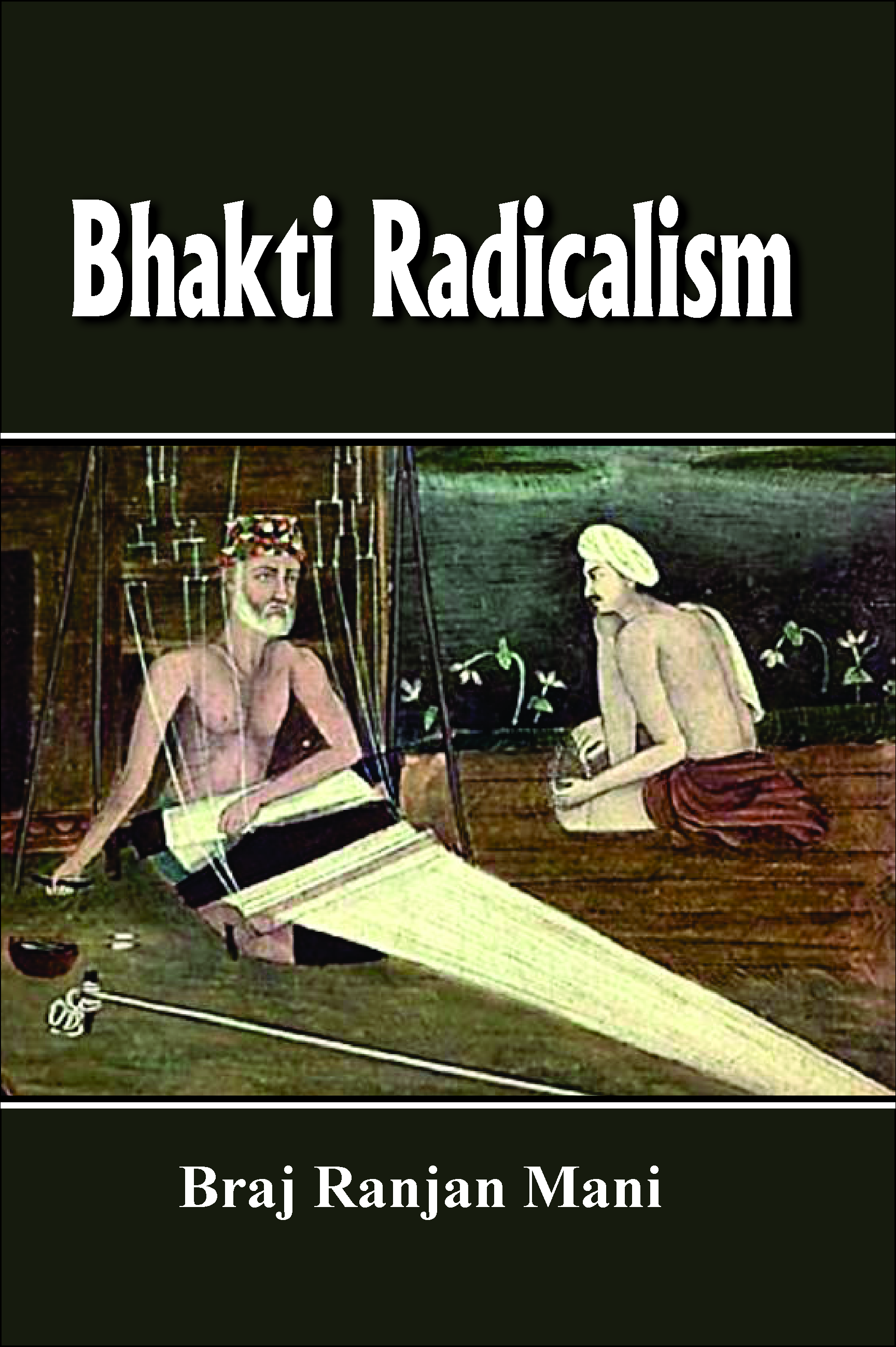 back to the list of books
back to the list of booksBrajRanjan Mani
Bhakti Radicalism
This study of Kabir and other radical sant-poets of the north, like any other study, is based on a particular perspective, with a practical framework, which can be stated in the following way: Privilege and discrimination, inherent in a hierarchical society, inevitably leads to social conflict which destroys the possibility of community consensus and cooperation... Speech and sound are foul, The Vedas are stained: Impurity has perpetrated so many forms. Learning, reading, recitation, the ancient books are all corrupt: Knowledge, cheapened, mouthed for free, is dirty. (Tr. Dharwadker 2003: 193)...... The sant-poets, thus, clothed their rebellion against injustice as obedience to God. Kabir says, whoever uses force commits a crime (Kabirajorkia so julumahai), and God will punish him severely. Their devotion was to a God who stirred up rebellion in the hearts of devotees.
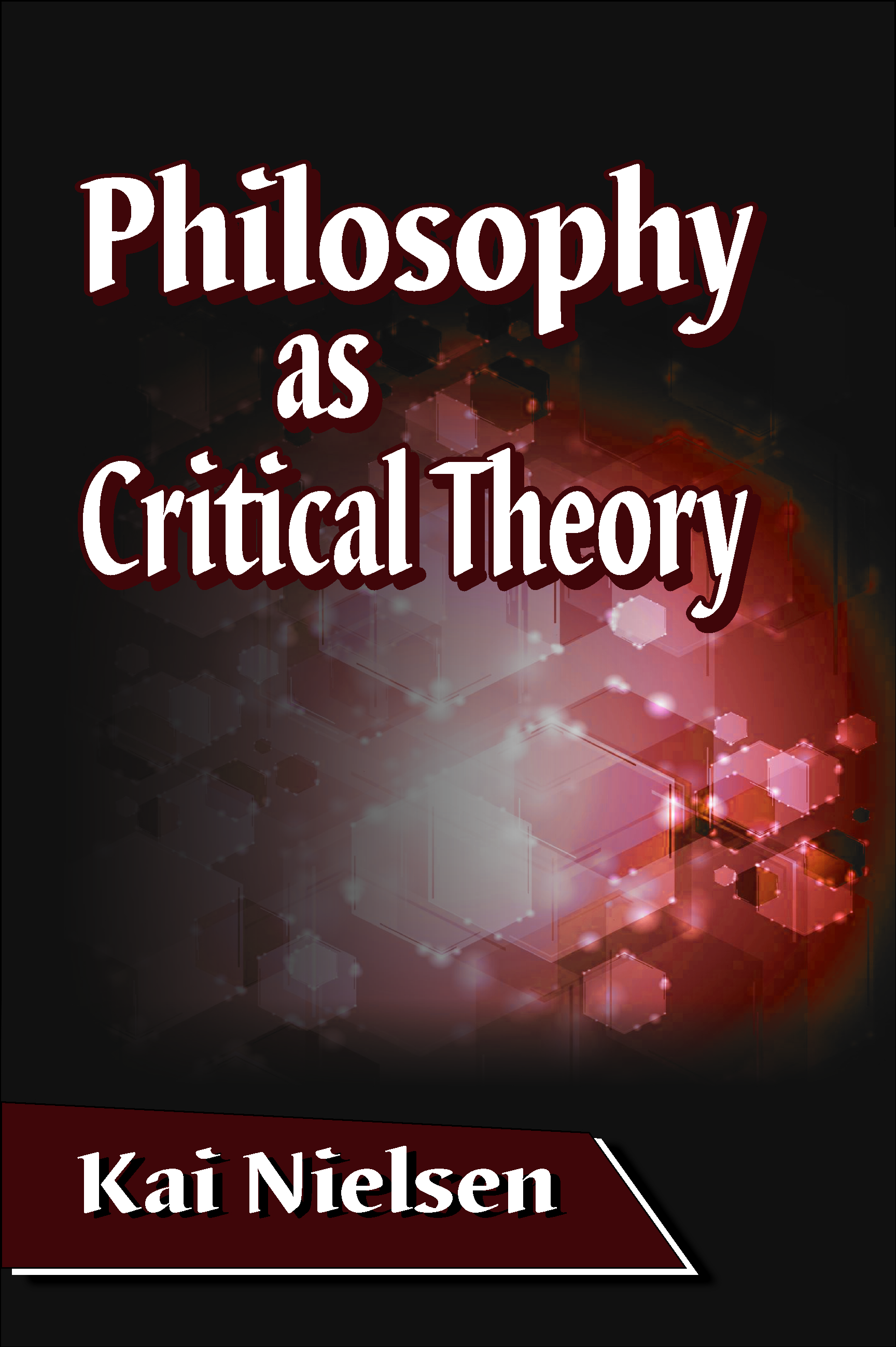 back to the list of books
back to the list of booksKai Nielsen
Philosophy as Critical Theory
All of these philosophers in their sometimes rather different ways may, of course, be mistaken, and foundationalism could still be alive and well and living in North America. But the list is rather impressive, containing many of the luminaries of contemporary philosophy, and that should give the foundationalist, or the foundationalistically inclined person, pause….. Foundationalism is a philosophical account which seeks to isolate, by some kind of philosophical method, a set of basic beliefs which are foundational to all the rest of the things that we may justifiably claim to know or reasonably believe….. The shock of the matter, for philosophers at least, is that philosophers cannot tell us what makes our ideas really clear, what we really mean or what we are justified in believing.12
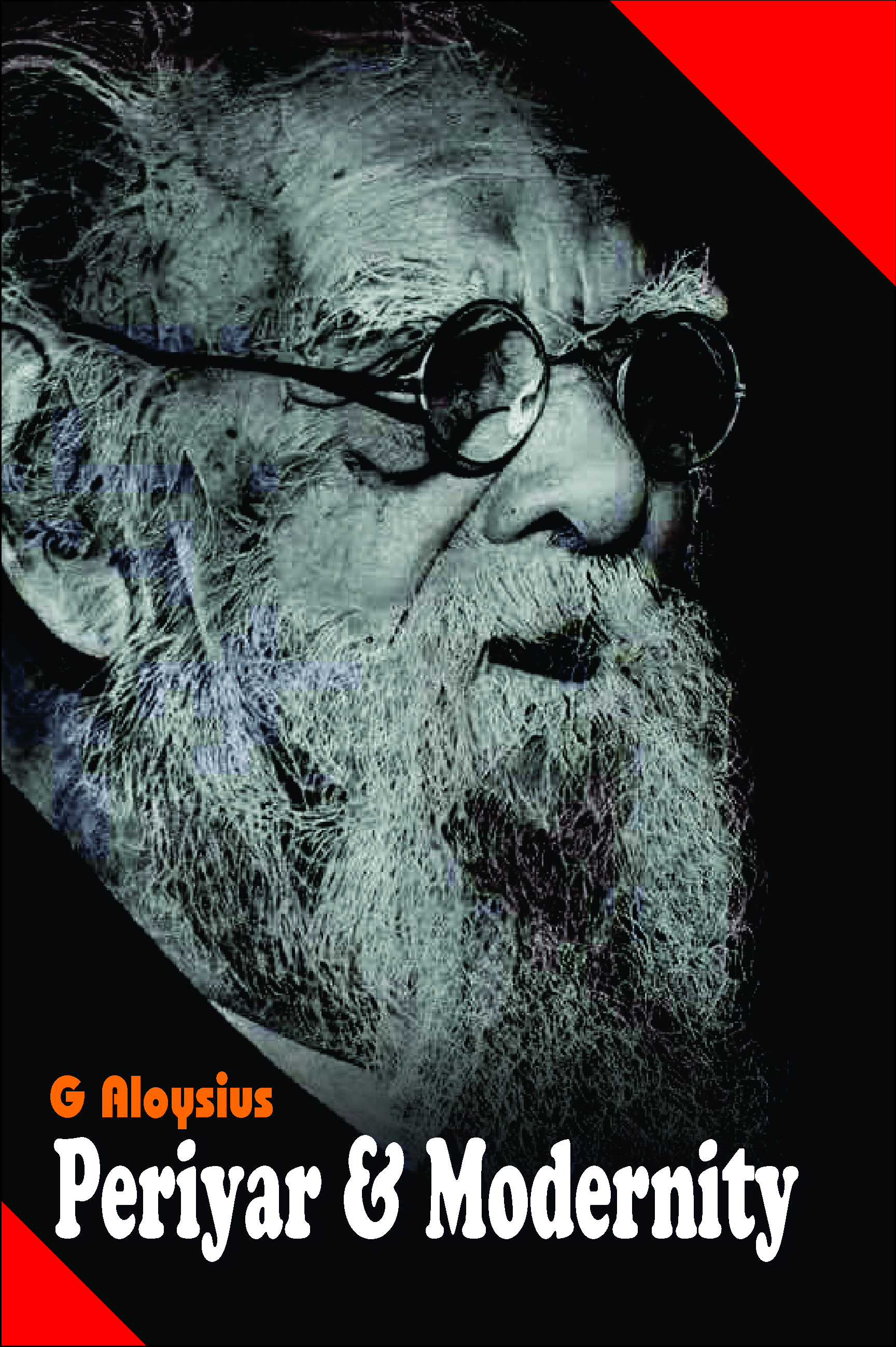 back to the list of books
back to the list of booksG Aloysius
Periyar & Modernity
Social Degradation (SamoogaIzhivu) of the mass of People With the Colonially abetted valorization, consolidation, subsequent nationalist legitimization and the gradual dovetailing within the emerging state structures, of selectively retrieved Brahminical way and view of life, the arrogance, aggression and aggrandizement of the various newly consolidated Brahminical groups in the social-public and political life of the country became pervasive, engulfing and was experienced as almost insufferable.6 …. Self-respect is a Visceral Concept Periyar’s own and specific response to the engulfing social degradation he experienced and observed as being imposed on the Tamil society by the colonially valorized Brahminism was formulated as lack of and calling for a struggle towards, ‘self-respect’….. “Our people still have not understood themselves properly and they do not care about their own self-respect. They should become conscious of the fact that the Aryan and we are different….. As long as our people remain slaves to the Aryan religion, our society will not achieve self-respect; they will not gain freedom either. In social sphere, we should first be freed from the Aryan domination. Because we became slaves to the Aryan, we have been branded as Sudhrar”. Kudi Arasu, 28-07-1940
 back to the list of books
back to the list of booksErich S Fromm
Marx’s Concept of Man
The majority of people are motivated by a wish for greater material gain, for comfort and gadgets, and this wish is restricted only by the desire for security and the avoidance of risks…… Goethe gave the most poetic and powerful expression to the idea of human productivity in his Faust. Neither possession, nor power, nor sensuous satisfaction, Faust teaches, can fulfil man’s desire for meaning in his life; he remains in all this separate from the whole, hence unhappy….. For Marx, socialism (or communism) is not flight or abstraction from, or loss of the objective world which men have created by the objectification of their faculties. It is not an impoverished return to unnatural, primitive simplicity.
 back to the list of books
back to the list of booksRonojoySen
Hinduism & the Indian Supreme Court
By translating the Sanskrit texts into Bengali, Roy wanted to strike a blow against those who “prefer custom and fashion to the authorities of their scriptures, and therefore continue, under the form of religious devotion, to practice a system which destroys, to the utmost degree, the natural texture of society, and prescribed crimes of the most heinous nature…”20 ….. In tracing the origin of the term ‘Hindu’, Savarkar refused to accept standard interpretations that held that the term was coined by outsiders to describe the people living across the Indus river. In his seminal text, Hindutva, he wrote, “Thus Hindu would be the name that this land and the people that inhabited it bore from time immemorial that even the Vedic name Sindhu is but a later and secondary form of it”.59 ….. Writing for the Court, Justice J S Verma said: “Under the guise of protecting your own religions, culture or creed you cannot embark on personal attacks on those of others or whip up low hard instincts and animosities or irrational fears between groups to secure electoral victories”.115
 back to the list of books
back to the list of booksSwaroopa Rani
Bruised but not Broken
In addition to the patriarchal violence, the caste-ridden feudal society oppresses Dalit, Bahujan, Adivasi, Muslim women with dire caste discrimination and sexual exploitation….. The criss-crossed entangled forest seems To have gathered its hair neatly into a knot. Swallowed by a corporate whale That spits them out in the centre of Shilparamam* Small huts in deep sleep amidst green trees Appear doll houses with lime patterns Alluring….. I remember The malapalli burning Its thatched roofs aflame, And then ashes All for want of a pot of water….. Rising with the morning star Sweeping darkness away with a broom That girl draws patterns of brightness… As she washes dishes the sun rises from her beads of sweat. Amidst the chirping of birds.
 back to the list of books
back to the list of booksPritam Singh
Institutional Communalism in India
During the movement for national independence, a similar conflict arose over protective measures for oppressed and vulnerable castes in the Hindu society…… The overwhelming numerical majority of Hindus in India8 (80.5% according to the 2001 Census), accords them a privileged location in the political, social, cultural and eventually economic networks, while disadvantaging the religious minorities (Muslims [13.4%], Christians [2.3%] and Sikhs [1.9%]) in these networks (Go Ind)9….. It is very difficult to get hard data on the representation of different religious communities in the intelligence agencies of the Indian state. A human rights activist, who shared with me some confidential information he was able to gather, was of the view that there were many layers of secrecy associated with different intelligence agencies of the state and that it was an unwritten rule that the more secret an agency was, the less was the likelihood of non-Hindus being given a job or role in it.
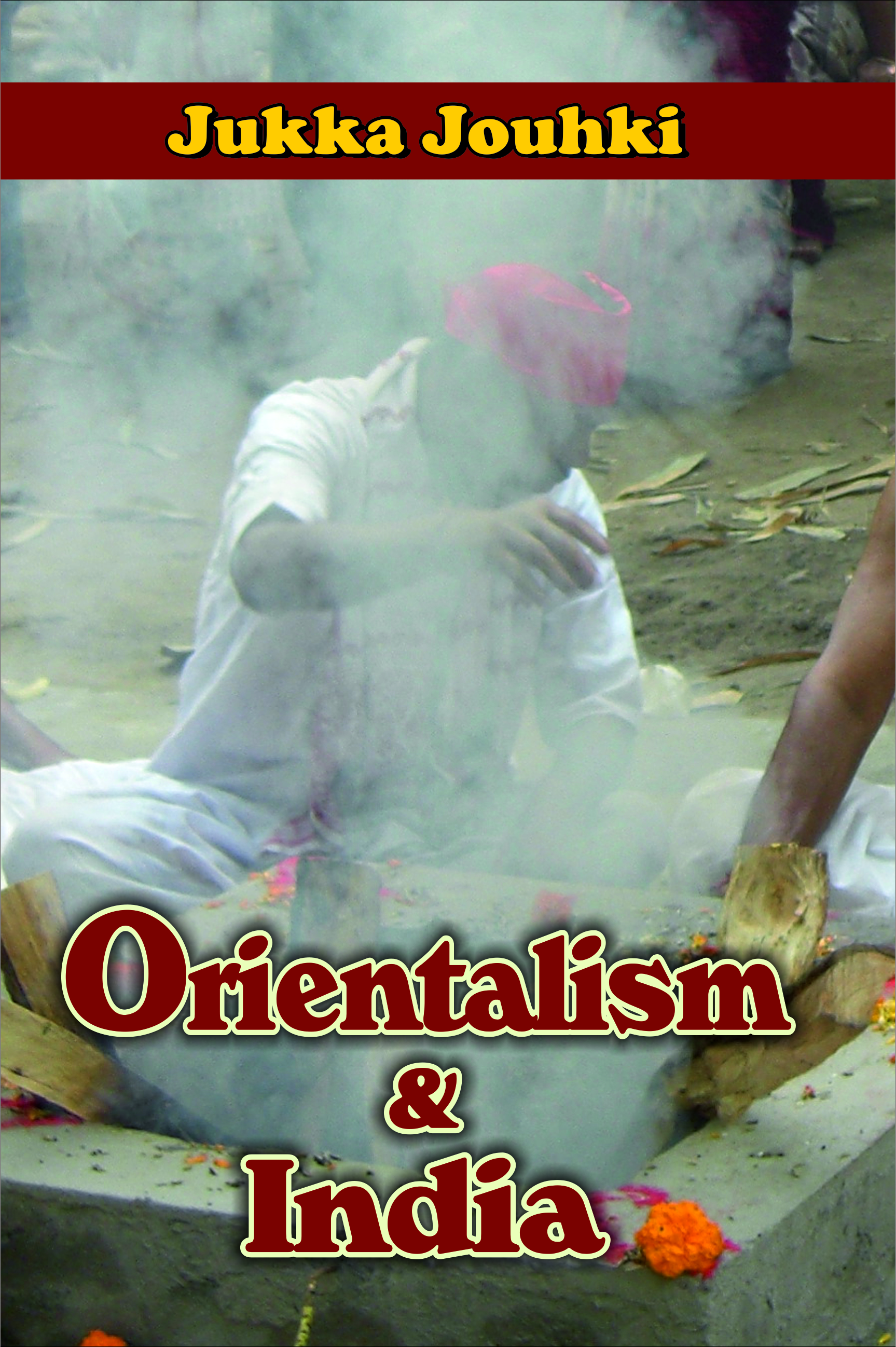 back to the list of books
back to the list of booksJukka Jouhki
Orientalism and India
In his highly celebrated but also provoking book Orientalism2, Edward Said (1935 - 2003) embarks on describing a long European tradition "of coming to terms with the Orient that is based on the Orient`s special place in European Western experience"... In this realm, versions of origins are offered and resisted in a continuing dialectic; thus Fanon likens the self-justifying ideological operation of colonialism to the mother "who unceasingly restrains her fundamentally perverse offspring from managing to commit suicide and from giving free rein to its evil instincts.
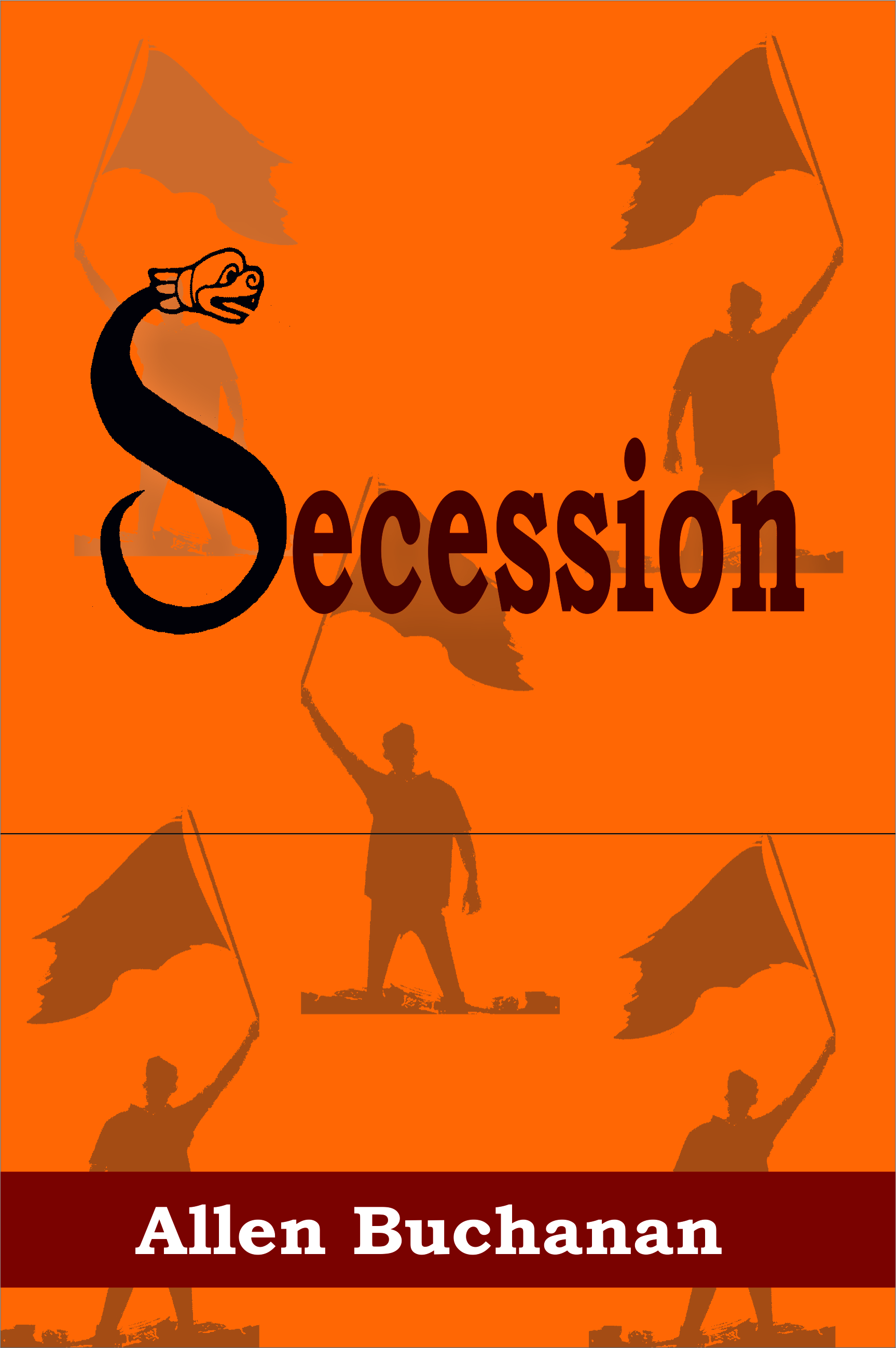 back to the list of books
back to the list of booksAllen Buchanan
Secession
Some philosophers have distinguished between the question, whether and, if so, under what conditions a group has a moral claim-right to secede and the question of whether and, if so, under what conditions a constitution ought to or may include a right to secede…… Accordingly, rival theories of secession must be understood as providing alternative accounts of what it takes for a group to come to have a claim to territory that is, at the time included in the territory of an existing state.
 back to the list of books
back to the list of booksAchin Vinaik
Marxism & Nationalism
It is a ‘social relation of collective self-consciousness’ where that consciousness comes from inherited cultural traditions even if those traditions are selected and therefore vary as contexts change over time and space.4 ……. The political dimension of the nation is, as it has to be, either ignored or greatly downgraded. It is only in modernity that a mass politics comes about as a matter of routine; and it is only in the modern era that there emerges a new principle central to all nations in their marriage with the state i.e., the nation-state – that of popular sovereignty. If once kings ruled, now nation-states govern.
 back to the list of books
back to the list of booksStephen Bachelor
A Secular Buddhism
This essay explores the possibility of a complete secular redefinition of Buddhism. It argues that such a secular re-formation would go beyond modifying a traditional Buddhist school, practice or ideology to make it more compatible with modernity, but would involve rethinking the core ideas on which the very notion of “Buddhism” is based……. As soon as the seductive notion of “truth” begins to permeate the discourse of the dharma, the pragmatic emphasis of the teaching risks being replaced by speculative metaphysics, and awakening comes to be seen as achieving an inner state of mind that somehow accords with an objective metaphysical “reality”.
 back to the list of books
back to the list of booksM S S S Pandian
Interpreting the Dravidian Movement
What made Pandian’s academic enquiries and concerns distinct and different from those of several academicians and intellectuals in this field?..... If the Aryan Brahmins were uncivilized, how could they exercise near complete hegemony over the Tamil society?.... While I draw substantially on these critiques of the Cambridge school, I have a slightly different and a limited agenda in this paper: I intend problematizing the Cambridge school’s silencing of political subjectivities based on identities such as class, caste, gender and language, in the specific context of their writings on the Dravidian movement(s).
 back to the list of books
back to the list of booksJotirao Govindrao Phule
Cultivator's Whipcord
Over and above the annual festivals and rituals mentioned above, the occasional eclipses of the moon and the sun, the turnings of the planets are occasions for the Bhat-Brahmans to take all manner of donations and feasts, walking the lanes of the farmers’ houses turn by turn…… After this, the Aryans were appointed as kulkarnis in various villages and included in their own religion some of the cowardly dasyus like Pralhad, who, while holding an enmity with the Arya Brahmans did nothing about it from beginning to end…… That the fifty-six kingdoms here neglected the republican state, and therefore the dasyus were defeated by the Arya Brahmans and are being exploited till date is indubitable, as if the fact that this was appropriate justice for their actions, but the Grecians beyond Iran from the beginning valued the republic and it was close to their heart.
 back to the list of books
back to the list of booksG Aloysius
Demystifying Modernity
In Defence of a Singular & Normative Ideal If Comte celebrated the arrival of Positivism, he also bemoaned the seemingly inevitable loss of values with the retreat of the supernatural….. The West is supposed to have arrived and the rest are yet to or has failed to arrive. In stronger versions, the West has reached modernity or the end of history, while the others have not even stepped into history.
 back to the list of books
back to the list of booksIyothee Thassar
Sudhesi Reform
We find Iyothee Thassar consistently casting his lot with that of the British, preferring them over the native leadership, because of the former’s sense of fairness, justice and compassion……. That being so, here where there are a thousand and eight castes, causing disunity, with one caste for even fire-wood and another for broom-stick, will it take much time to control them? Very easily they could be controlled….. Also, there is the talk that the Sudhesis are working for the Sudhesis; that we need not bother; and that even if disaster falls, that too would be only for good! But this also is not proper.
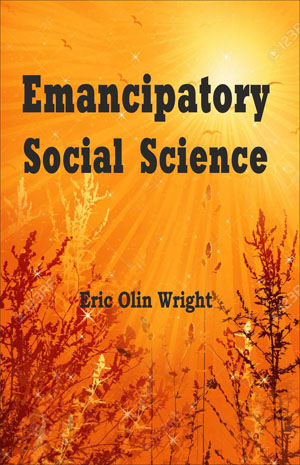 back to the list of books
back to the list of booksEric Olin Wright
Emancipatory Social Science
Emancipatory social science seeks to generate scientific knowledge relevant to the collective project of challenging various forms of human oppression…
To fulfill this mission, any emancipatory social science faces three basic tasks: elaborating a systematic diagnosis and critique of the world as it
exists; envisioning viable alternatives; and understanding the obstacles, possibilities, and dilemmas of transformation. In different times and places one or another
of these may be more pressing than others, but all are necessary for a comprehensive emancipatory theory…..
Crucially, to develop and exercise these potentials requires material resources and appropriate social conditions. The importance of material resources
for human flourishing is obvious. Certainly without things like adequate nutrition, housing, clothing, and personal security
it is difficult for most people to flourish in either the restrictive or expansive sense.
 back to the list of books
back to the list of booksSukhadeo Thorat
Why Prejudice against the Reservation Policy?
The Directive Principles of State Policy under the Constitution also put an obligation on the State to “promote educational and economic interests of SC and ST and other weaker sections, and protect them from social injustices and all forms of exploitation” by enacting appropriate laws and policies….
The miniscule share of permanent employees under reservation in the total workforce among the SCs would not matter,
if the rest of the persons were to own income-earning capital assets…..
The most common criticism of the RP is that those who are economically better off among the SCs have benefited more than the weak, and consequently,
the critics claim that caste should be replaced by the economic criterion for the enforcement of reservation.
 back to the list of books
back to the list of booksM N Roy
Materialism in Indian Philosophy
All the existing schools of philosophy mention earlier thinkers as “heretics” or “nihilists”. The former had denied the authority of the Vedas; the latter doubted if anything existed at all…..
The Upanishads record not only strands of rationalist, naturalist and agnostic thought, but also out-and-out atheism and materialism…..
Nihilism was the ideology of the dissolution of antique society in India. It was revolutionary in the sense that it was a mighty revolt against
Vedic priest-craft; but as a school of philosophical thought, it was sterile.
 back to the list of books
back to the list of booksRobert A Harris
A Summary Critique of the Fact/Value Dichotomy
One of the most significant struggles in the marketplace of ideas takes place over the control of the terms of discourse. Those who can frame a controversial issue in terms they prefer, have a great advantage in shaping public opinion. “Are you pro-choice or anti-choice?” is a typical example of this kind of framing….
The positivists declared that only facts, derived from experiment and observation, could be called truth, and they rejected all talk
about values (ethics, morals, religion, philosophy) not only as “preferences without foundation”(5) but as meaningless or “non-cognitive” babble…..
Values also come into play in the choice of theories.
 back to the list of books
back to the list of booksK M Balasubramaniam
Periyar E V Ramasami: A Profile
With the Besantian growth of hair on his head, short, soft and of shining silvery hue, with his snow-white patriarchal beard sanctifying his cherubic countenance, with the Shavian growth of longish eye-brows, white, thick and wiry, with his black-rimmed spectacles with a pair of bright eyes flaming through, with a broad and expansive forehead adding to the beauty of the face and his ornamental nose that adorns with its aesthetic shape, Periyar Ramasami looks the leader of the manor-born…..
The most embarrassing moment in his otherwise happy life is when strangers to his habits innocently inform him in the early hours of the
morning that arrangements for his bath are complete…..
The Periyar is the anti-thesis of Gandhi. He is a living libel on Gandhi’s politics, a peregrinating challenge to his pretension to greatness.
 back to the list of books
back to the list of booksVladimir I Lenin
Religion
In developing their materialist philosophy, Marx and Engels had at first thoroughly to analyze the ideas which came from the religious world of thought…..
It is necessary therefore to re-state the attitude of the Communists towards religion. This attitude is well explained in the collection of
articles by Lenin on this subject contained in this booklet. From these the reader will also obtain Lenin’s view on how to counteract the
religious doping of the workers…..
The two letters from Lenin to Maxim Gorky, written in 1913, are a valuable part of this collection. The letters are directed against the revival
of an emotional variety of Socialism, with a religious tendency, as preached at that time, after the defeat of the 1905 revolution, by the group
of “God-seekers” which had gathered around Lunacharsky and Gorky.
 back to the list of books
back to the list of booksFrederic Engels
Revolutionary Christianity
In 1850, Engels wrote The Peasant war in Germany. While the study was within the larger framework of historical materialism, that is highlighting the economic and material forces and down-playing the political and religious, Engels found scope in it to highlight the differential role that Christianity played in the course of the scattered battles of the peasants….
Engels approvingly refers to Renan who says that, how in order to get a glimpse of the collective life of the early Christians, one should not go
to day’s parishes but go to the modern, Socialist workers’ councils!....
However, Engels himself may not endorse all these academic and activist extensions of his insights, for the larger framework within was historical
materialist, whose stance towards religion ultimately was always and unambiguously critical.
 back to the list of books
back to the list of booksKarl Marx & Frederic Engels
A Critique of Religion
India today could legitimately be described as a ‘religious country’….. The foundation of irreligious criticism is: Man makes religion, religion does not make man…..
If correctly understood, interest is the principle of all morality, man’s private interest must be made to coincide with the interest of humanity. If man is unfree in the materialistic sense, i.e., is free not through the negative power to avoid this or that, but through the positive power to assert his true individuality, crime must not be punished in the individual, but the anti-social sources of crime must be destroyed, and each man must be given social scope for the vital manifestation of his being.
 back to the list of books
back to the list of booksPritam Singh
Hindu Bias in Indian Constitution
This paper demonstrates that the secularism of India’s Constituton is Hindu-tainted…..
I start below by briefly providing the politico historic context of my argument….
This paper has attempted to demonstrate that the constitution of India is not a document which the secular and progressive forces in India
can use unproblematically against their Hindutva opponents. This Constitution has several elements of Hindu bias in it….
Recognizing the Hindu bias in Indian Constitution helps to show that Hindutva in India is widespread and deeply rooted and goes beyond what
is represented by the Hindutva group of organizations known as the Sangh Parivar.
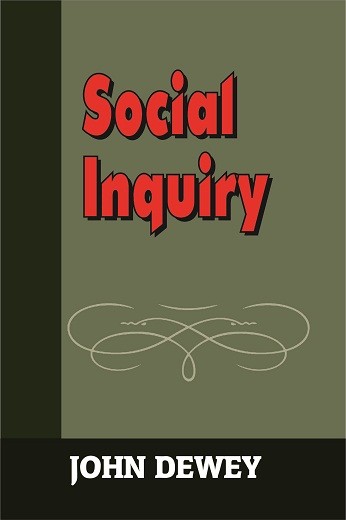 back to the list of books
back to the list of booksJohn Dewy
Social Inquiry
“The idea that ‘the end justifies the means’ is in as bad repute in moral theory as its adoption is a commonplace of political practice…
Evaluative judgments, judgments of better and worse about the means to be employed, material and procedural, are required….
In fine, fact-finding procedures are necessary for (1) determination of problems and for (2) provision of data that indicate and test hypotheses; while formulation of conceptual structures and frames of reference is necessary to guide observation in discriminating and ordering data….”
 back to the list of books
back to the list of booksHilary Silver
The Contexts of Social Inclusion
“In Europe, welfare regime types include the Anglo-American liberal, Continental conservative or corporatist, Nordic social democratic, and Mediterranean or Southern traditional regime….
As for intergenerational mobility, recent work demonstrates that the liberal, individualistic US in fact has less upward mobility in earnings than Old world, supposedly class-bound Britain, which in turn has less mobility than the social democratic Nordic countries (Jantii et al., 2006)…….
Neighborhood ecological studies predicting social cohesion or its social effects have rarely been tested outside the context of the United States and Western Europe. A few quantitative studies of crime in poor neighborhoods in developing countries do exist….”
 back to the list of books
back to the list of booksHarriet T Mill
The Enfranchisement of Women
“That the promoters of this new agitation take their stand on principles, and do not fear to declare these in their widest extent, without time-serving or compromise, will be seen from the resolutions adopted by the convention, part of which we transcribe……
The first, the maternity argument, is usually laid most stress upon, although (it needs hardly be said) this reason, if it be one, can apply only to mothers…..
In what we have said on the effect of the inferior position of women, combined with the present constitution of married life, we have thus far had in view only the most favourable cases, those in which there is some real approach to that union and blending of characters and lives, which the theory of the relation contemplates s its ideal standard….”
 back to the list of books
back to the list of booksMarcus Green
Gramsci Cannot Speak
“On the first page of his notebooks, Gramsci listed sixteen main topics that he planned to address in his notebooks. The first topic he listed was a “Theory of history and historiography”(Notebook 1)…….
Following Gramsci’s analysis, several conclusions can be drawn regarding his interpretation of subaltern groups and their activity…..
Gramsci viewed socio-historical-cultural analysis as partial ends in themselves (for instance, with the purpose of writing books), but ultimately Gramsci utilized his analysis for the purpose of informing practical political activity, to justify particular actions, initiatives, and tactics (Notebook 13, ⸹17; 1971, 185)……”
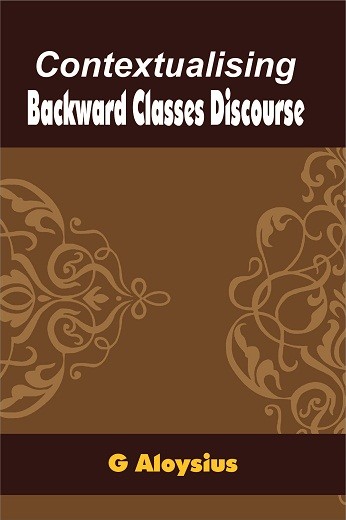 back to the list of books
back to the list of booksG Aloysius
Contextualizing Backward Classes Discourse
“Ratna G Revankar (1971) studied the Indian Constitution from the point of view of the Backward Classes…..
In point of fact, during the entire nationalist phase, the contestation between the dominant middle class and he caste-religion fragmented masses, subsequently to be categorized as the SCs, STs, OBCs and also the minorities, was more pervasive, complex, intractable and acrimonious than the much-vaunted political antagonism between the middle classes and the colonial State…..
Contextualized this way, in history and theory, the scheme of protective discrimination for the Backward Classes offered by the Independent India and the discourses surrounding it may appear neither, proactive, generous, extensive nor emancipator, as claimed either implicitly by many of the mainstream writers…..”
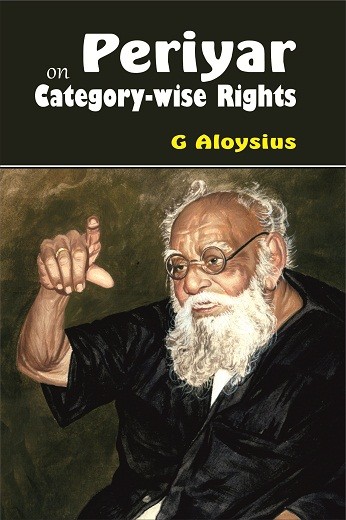 back to the list of books
back to the list of booksG Aloysius
Periyar on Category-wise Rights
Periyar’s conception of this scheme of category-wise rights directly and headlong addressed the persistent refusal of the dominant Brahminical-turned-nationalist to countenance any form of group-based rights for the emerging India; and this was done, curiously, in the name of nationalism…..
The Brahminical, with its structural association with the British, first of all, had transformed the newly-unified India as a monolithically caste-organised and a Hindu country……
Through this imposition of the backward classes discourse, the Brahminical elite of the country has managed to make permanent the social degradation into which the mass of people or country as a whole have been pushed….”
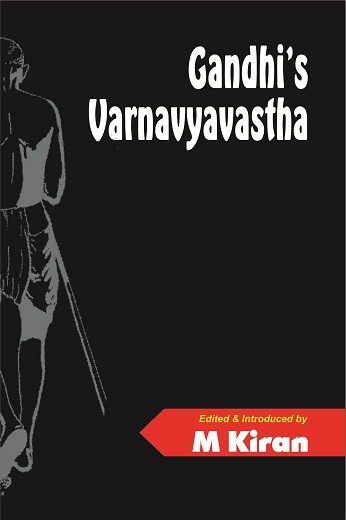 back to the list of books
back to the list of booksM Kiran
Gandhi's Varnavyavastha
The transition from pre-modernity to modernity was a multifarious and complex transformation. At this point two important changes a society generally undergoes are to be highlighted….
Caste does not connote superiority or inferiority…..
Touch, drink, food and marriage are progressively private affairs…..”
 back to the list of books
back to the list of booksK Kondala Rao
OBC and State Policy
The objective of this study is to present as far as possible a comprehensive and critical account of the historical facts of the process of empowerment of the Other Backward Classes in the context of the gap between the Constitutional promise, its construction and the present status of opportunity-sharing and surrounding reasons. This essay is divided into seven sections.......
When the amendment of draft Article 296, as modified by Dr. Ambedkar came up for debate in the Constituent Assembly while members like Dr. P. S. Deshmukh and Guptanath Singh who were earlier promised by Mr. Munshi and Dr. Ambedkar, repeatedly insisted for inclusion of "Backward Classes" also along with SCs and STs in the said Article, members from upper castes like Pundit Thakurdas Bhargava and R. K. Sidhwa who had gone to the extent of expressing that he did not want backward classes at all to be mentioned in our Constitution, opposed the inclusion of backward classes; and Dr. B. R. Ambedkar and K. M. Munshi, kept silent as commented by Guptanath Singh .......
 back to the list of books
back to the list of booksY A Raikar
Indian History: A Study in Dynamics
"What is the meaning of Indian History?"...
Thus we find a continuous operation of these two forces throughout the history. Such a conflict between the forces of concord and discord has a
disintegrative as well as an integrative role. Hence, the "Unity in diversity" of India is a result of the interaction of these forces....
A survey of Indian history from the earliest times would reveal how closely our history follows the pattern laid down by geography, and how the vertical and horizontal developments, blended with the recurrent foreign penetration, go into the making up of the personality of India. The earliest event in Indian history, known to every student is the Indus Valley Civilization (2500 B.C.-I 500 B.C.)9 unveiled by the discovery at Mohenjo Daro.
 back to the list of books
back to the list of booksRev S Gnanaprakasar OMI
The Origin of Caste among the Tamils
The Tamil people in general believe that the caste system, which is holding them in firm grip from time immemorial, is an original inheritance of their race and that, as such, it is a sacred thing to be guarded religiously. A little inquiry into the history of its origin, however, will dissipate this false belief and help them to rise above a state of things which most people feel is a terrible incubus on a progressive generation...
In fact, although the callings, practices and usages of the peoples of the different regions were varied, there was no barrier
for a man of one tract settling in and intermingling with the people of another territory..
Was the caste system part and parcel of Aryan social life from the beginning? It does not seem so...
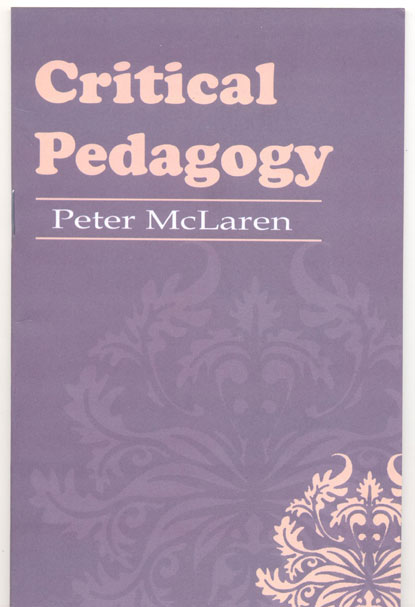 back to the list of books
back to the list of booksPeter McLaren
Critical Pedagogy: A Look at the Major Concepts
In practice, critical pedagogy is as diverse as its many adherents, yet common themes and constructs run through many of their writings. In what follows, I will outline in more detail the major categories within this tradition..
A dialectical understanding of schooling permits us to see schools as sites of both domination and liberation; this runs counter to the over-deterministic orthodox Marxist view of schooling, which claims that schools simply reproduce class relations and passively indoctrinate students into becoming greedy young capitalists...
The concept of cultural capital, made popular by French sociologist Pierre Bourdieu, refers to the general cultural background, knowledge, disposition, and skills that are passed on from one generation to another.
 back to the list of books
back to the list of booksV. Geetha
Brahminism & the Anxieties of History
".the caste system is designed to preserve Indian society in a static mould. Its principal function now is the negation of history, and therewith the negation of progress...
Why Brahminism? Attempting a Definition
Brahminism is a curious and frustrating critical object: it appears to belong to several conceptual realms simultaneously, and does not admit easy
glossing....
Anything a Brahmin does, even if it is contested and disputed by other Brahmins, and even if goes against the grain of scripture,
becomes him. Whatever he does, however he does it, he retains for himself an identity that is exclusive, different...
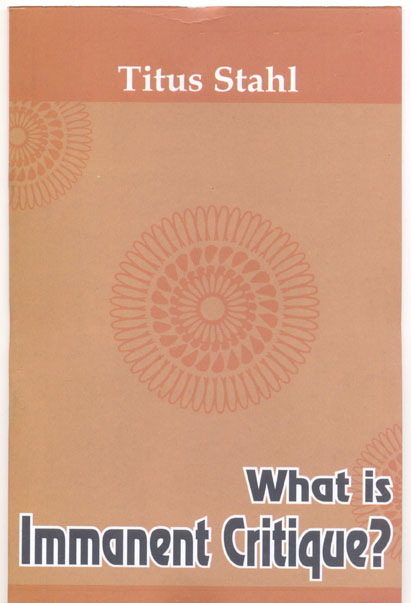 back to the list of books
back to the list of booksTitus Stahl
What is Immanent Critique?
Traditionally, the form of social critique that proceeds in this way has been called immanent critique. In a nutshell, an immanent critique of society is a critique which derives the standards it employs from the object criticized, that is, the society in question, rather than approaching that society with independently justified standards...
Even though some of the critics of such context-free normative theorizing have taken this to be an occasion for endorsing a more relativistic, internal
form of critique, others such as Michael Walzer, Charles Taylor and Axel Honneth have again turned to what in effect is the method of immanent critique.....
In contrast to hermeneutic immanent critique, practice-theoretic immanent critique does not (or at least does not only)
draw on interpretations of the explicit self- understanding of some community...
 back to the list of books
back to the list of booksPaul S. Adler et al.
Critical Management Studies
To begin, it might be useful to illustrate what we mean by critical. We take teamwork as an example. In a large body of mainstream research, teamwork is presented as a means by which managers can more effectively mobilize employees to improve business performance...
While issues of work organization such as teamwork form an important part of the body of CMS scholarship, CMS today addresses a wide variety of management issues in a broad range of fields-not only
OB-HRM and OT, but also industrial relations, strategy, accounting, information systems research, inter- national business, marketing, and so forth..
Poststructuralist critics contest the assertion that there are real mechanisms that science can detect (rather than construct; see Willmott, 1996).
They argue that critical realism's universalizing claims result in an authoritarian view of science as the font of objective, impartial knowledge..
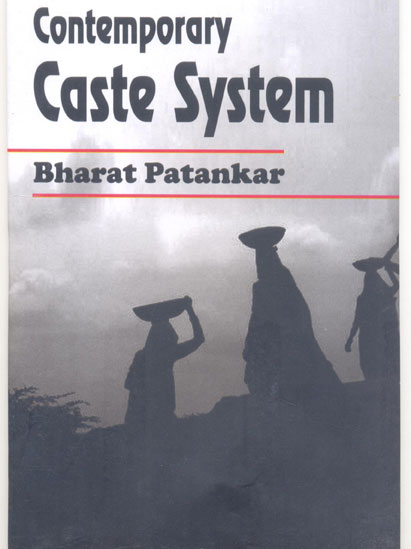 back to the list of books
back to the list of booksBharat Patankar
Contemporary Caste System
A system in which production gives more than is necessary for an abundant existence is one in which "surplus" is created. Such surplus is fundamental for a society of varied production......
On the basis of these two realities - the superficial reality and the reality of the laws of motion of the caste mode of production - we can now talk about the
existing structure of the caste system under the domination of the bourgeois mode of production......
To say anything about caste and culture we have to understand that the caste system is not like any other system of exploitation which by and large has
binary relations of class exploitation. But it is hierarchical exploitation with a division within the exploited castes which is a division based
on one exploited caste taking part in exploitation of the lower castes in whatever partial manner while transferring the surplus to the higher castes.........
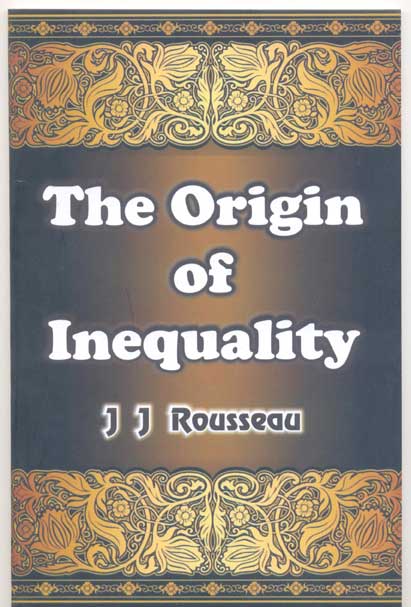 back to the list of books
back to the list of booksJ J Rousseau
The Origin of Inequality
'Tis of man I am to speak; and the very question, in answer to which I am to speak of him, sufficiently informs me that I am going to speak to men; for to those alone, who are not afraid of honouring truth, it belongs to propose discussions of this kind. I shall therefore maintain with confidence the cause of mankind before the sages, who invite me to stand up in its defence; and I shall think myself happy, if I can but behave in a manner not unworthy of my subject and of my judges.....
Nature speaks to all animals, and beasts obey her voice. Man feels the same impression, but he at the same time perceives that he is free to resist or to acquiesce; and it is in the consciousness of this liberty, that the spirituality of his soul chiefly appears: for natural philosophy explains, in some measure, the mechanism of the senses and the formation of ideas; but in the power of willing, or rather of choosing, and in the consciousness of this power, nothing can be discovered but acts, that are purely spiritual, and cannot be accounted for by the laws of mechanics.......
The first developments of the heart were the effects of a new situation, which united husbands and wives, parents and children, under one roof; the habit of living together gave birth to the sweetest sentiments the human species is acquainted with, conjugal and paternal love....
 back to the list of books
back to the list of booksCressida J Heyes
Identity PoliticS
The scope of political movements that may be described as identity politics is broad: the examples used in the philosophical literature are predominantly of struggles within western capitalist democracies, but indigenous rights movements worldwide, nationalist projects, or demands for regional self-determination use similar arguments......
The perceived paucity of rewards offered by liberal capitalism, however, spurred forms of radical critique that sought to explain the persistence of oppression. At the most basic philosophical level, critics of liberalism suggested that liberal social ontology-the model of the nature of and relationship between subjects and collectives-was misguided......
Rather than understanding sexual identities as a set of discrete and independent social types, queer theorists adduce evidence and read
to emphasize their mutual implication: for example, such thinkers love to point out that the word "homosexuality" first appears in English in 1897,
but the term "heterosexuality" is back-formed, first used some years later (Garber, 1995: 39-42). Heterosexuality comes into existence as a way of understanding the nature of individuals after the homosexual has been diagnosed;
homosexuality requires heterosexuality as its opposite, despite its self-professed stand-alone essence.....
 back to the list of books
back to the list of booksRalph Waldo Emerson
Self-Reliance
There is a time in every man's education when he arrives at the conviction that envy is ignorance; that imitation is suicide;(10) that he must take himself for better, for worse, as his portion; that though the wide universe is full of good, no kernel of nourishing corn can come to him but through his toil bestowed on that plot of ground which is given to him to till......
If we ask whence this comes, if we seek to pry into the soul that causes, all philosophy is at fault. Its presence or its absence is all we can affirm. Every man discriminates between the voluntary acts of his mind, and his involuntary perceptions, and knows that to his involuntary perceptions a perfect faith is due......
And so the reliance on Property, including the reliance on governments which protect it, is the want of self-reliance. Men have looked away from themselves and at things so long, that they have come to esteem the religious, learned, and civil institutions as guards of property, and they deprecate assaults on these, because they feel them to be assaults on property........
 back to the list of books
back to the list of booksDuncan McDuie-Ra
Violence against Women
This article contends that essentialist notions of gender oppression are inadequate in understanding the realities in the Northeast frontier......Divorce carries a major social stigma for women and their families, and thus, women are more likely to remain in abusive marriages, less likely to seek help, and more likely to tolerate abuse (Basu, 2001)......
In this frontier culture of violence VAW emanates from the continued interplay between the external non-familial context and the internal familial context. In this environment, violence is constitutive of public and private spaces........
 back to the list of books
back to the list of books Umesh Bagade
Ambedkar's Historical Method
Under the intellectual upheavals from Renaissance to Enlightenment of Europe, the historical method evolved into a new scientific method. By modeling itself on scientific method it laid down the foundation of internal and external criticism and was baptized as a positivist method (Collingwood, 1961:126)....
Kohan comments that, 'the process of editing of primary sources in indigenous Indian languages, compilation of dictionaries and catalogues, publishing gazetteers had given added
advantage to colonialism of capturing epistemological space' (Kohan, 1997: 21).....
Although Ambedkar espoused objectivity he knew that in a caste society objectivity cannot withstand. Despite positivist strictures, the caste
subjectivities will always prevail. The colonial and nationalist practice of history had already shown that caste and patriarchal
subjectivities were so entrenched that they covered methodological ground as well.
 back to the list of books
back to the list of booksChristoph Wulf
Critical Educational Science
Breaking clearly with the traditions of humanist and empirical pedagogics, another current in the educational science developed out of the paradigm of the Critical Theory of the Frankfurt school.....
What this must establish is the interdependence between the educational system itself and the structure of society.......
According to Mollenhauer, an interest in emancipation, which must be the orientation of educational action, is at the centre of a critical
educational science. To the extent that the Critical Theory of education heads to wards this objective, it must use the procedures of ideological
criticism to determine, in a concrete case, what the emancipatory interest of the educational intervention is, and what strategies are congruent to achieve it.....
 back to the list of books
back to the list of booksMurzban Jal
Asiatic Mode of Production
Alongside of modern evils, a whole series of inherited evils oppress us, arising from the passive survival of antiquated modes of production, with their inevitable train of social and political anachronisms. We suffer not only from the living, but from the dead. Le mort saist le vif! We are seized by the dead!
- Karl Marx, Capital, Vol I.
Marx, Ambedkar and the 'Hindu' Counter-revolution
The ideological hegemony of Brahminism contributed to the stagnation of Indian society, not just by preventing a revolt of the exploited classes; it did so in another way as well, which EMS elaborated somehow later, basing himself on the work of the great Marxist philosopher, Debiprasad Chattopadhyay.....
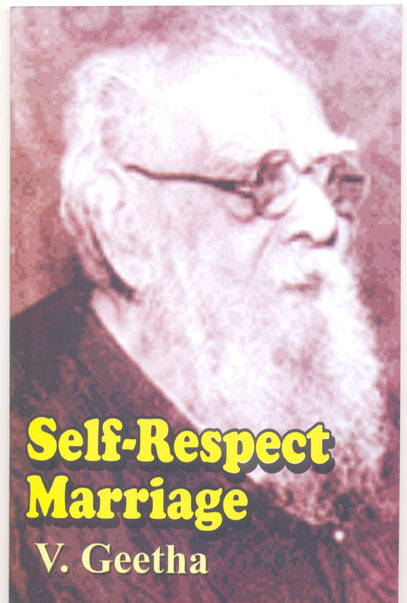 back to the list of books
back to the list of booksV. Geetha
Self-Respect Marriage
By Tamil Non Brahminism, I mean that complex of ideas and practices which informed the politics of anti-caste, social and political movements in the Tamil country from at least the last decades of the previous century.......
Secondly, Self-Respect marriages were daring in their flouting of custom and caste and openly and deliberately challenged the power of Brahmins to consecrate marriages......
Periyar granted that Self-Respect marriages were constitutively indefinable, since there existed any number of variations of such unions and each claimed to be different from a conventional marriage, and announced itself to have been guided by the play of reason alone. In a sense, this reflected on the phenomenon of the rational itself which knew no boundaries, save those it set for itself. This surely ought to be clear, argued Periyar, to those who were familiar with practices of faith, which were equally resistant to simple definitions, being infinitely different. Yet, since the question of definition had come up, he needed to address it.......
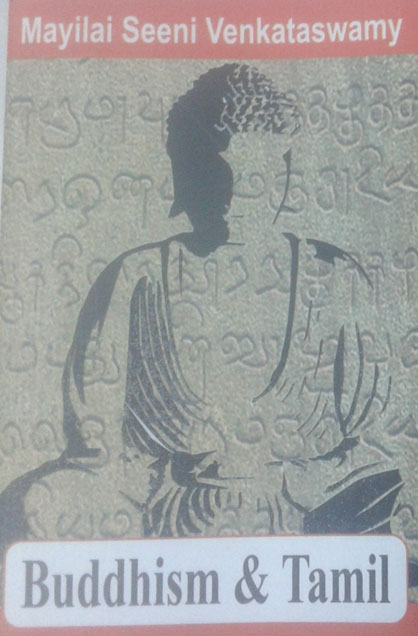 back to the list of books
back to the list of booksMayilai Seeni Venkataswamy
Buddhism & Tamil
The word 'Tamil Nadu' in the source text denotes the earlier Tamil speaking region (including present Tamil Nadu and Kerala) as has been used through the ages by many scholars......
As discussed in the chapter 'Buddhists and Tamil' that both Jains and Buddhists used vernaculars of different regions to propagate their religious thoughts in those places. If this is so, wouldn't they also have composed many texts in Tamil? Yes, there is no doubt that they would have written many texts......
Like this, while Devadattan was planning to murder Buddha, Ajatasatru was plotting against the king and attempting to kill him. The king who came to know of the conspiracy, handed over his kingdom to his son and retired from royal duties......
 back to the list of books
back to the list of booksN K Das
The Noreast India: A Profile
This monograph aims to provide a short profile of the region, by elucidating its complex issues such as persistent social exclusion, ethnic conflict, immigration problem, armed struggles, militarization and concerns of development and governance......
In the Northeast, urbanization is slow because the region remains an agro-based economy with little industrial infrastructural opportunities......
Indeed, many Naga and Kuki tribes reveal varied polities representing chieftaincy/ feudal hierarchy as well as decentralized-democracy......
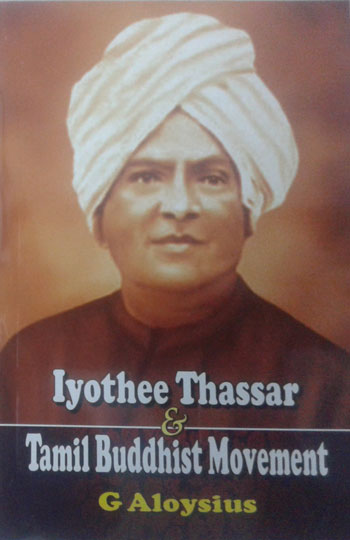 back to the list of books
back to the list of booksG Aloysius
Iyothee Thassar & Tamil Buddhist Movement
This is a sociological study of a socio-religious movement among the Tamils during the colonial period. It investigates and brings to light for the first time, the forgotten movement of Buddhist reconstruction - the life and writings of Pandit Iyothee Thassar, the organization and activities of Sakya/South Indian Buddhist association and the birth and growth of the ideology of ant-Brahminism, Dravidianism and rationalism in the northern districts of Tamil Nadu, Bangalore, Kolar Gold Fields and Hubli of Karnataka as well as Burma, Ceylon, South Africa etc., wherever the Tamils had migrated as labourers during the late 19th and early 20th centuries. Using primary sources - the movement's own massive literary output - journals, tracts - generally not available in archives and libraries, and in-depth interviews in the field, the study examines the various aspects of the reconstructed Tamil religion - its symbols, rituals, belief system and social practice.
 back to the list of books
back to the list of booksUma Chakravarti
Pandita Ramabai Once More
Eight years after Rewriting History first came out Ramabai's life and times still enthuse me: I continue to engage with her, think about her and write about her even though there have been occasional comments from 'native' cultural specialists from Maharashtra who have suggested that 'outsiders' cannot 'really understand', or write with 'authenticity' about the region in which she lived her life.
Let us begin with the popular Hindu middle class position that Ramabai's conversion to Christianity made her 'anti-national'. The same middle classes paid no attention to Ramabai's long struggle with the Anglican Church on matters of 'propriety' and of belief, a struggle in which Ramabai refused to compromise on her convictions.
"I felt from the beginning that this was a bone that stuck in her throat... England to an Indian has an unsavoury sound.... the bitterness that burns like a fire deep down in the souls of Indian people, which various circumstances tend to suppress, must out at certain times.... with this feeling burning in their souls the very title the Church of England would tend to alarm and repel".
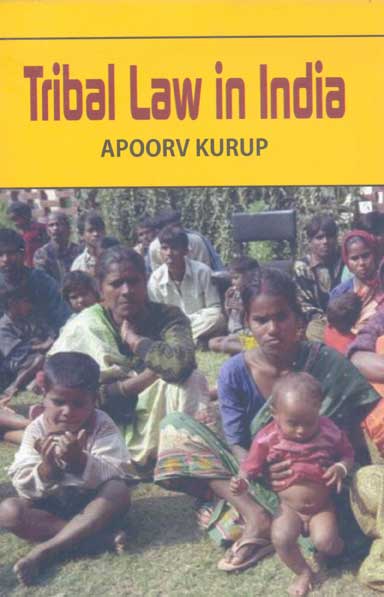 back to the list of books
back to the list of booksApoorv Kurup
Tribal Law in India
"India's population includes nearly one hundred million tribal people. These numbers are matched only by the remarkable diversity of India's tribes2. The two main regions of tribal settlement are the country's northeastern states bordering China and Burma, and the highlands and plains of its central and southern regions3. The latter is home to more than 80 per cent of the tribes, which differ from the northeastern tribes in ethnicity and in having experienced greater intrusion of the Indian mainstream and of the pan-Indian model of the state, society, economy and culture.
"Constitutional law in India requires each heading in such a legislative list to be given "the widest scope of which their meaning is fairly capable because they set up a machinery of Government". Accordingly, autonomous tribal governments would have the discretion to legislate on the subjects in the fourth list, as well as establishing the mechanism to achieve the objective of that legislation.
"In a bottom-up approach, the tribal areas would have to be realigned to conform to the community as a social construct, perhaps through a cooperative approach involving the local administration and the tribes."
 back to the list of books
back to the list of booksNaorem Sanajoba
AFSPA: A Law Review
"The apex court upheld the statute on 27 November, 1997, by overlooking the gross human rights violations since 1958, whereas it could have struck down the black law on the grounds of its incompatibility with the Rule of Law and the ICCPR, 1966 to which India is a State Party.
"The obvious contradiction lies in the fact that the justification for colonization or, re-colonization through Colonial Statute after the lapse of Colonialism is totally absurd and false. "By criticizing the black law - AFSPA 1958 and the license to shoot and kill any citizen merely on suspicion, SHRDC observes, "These provisions give a broad license to extra judicially execute" innocent and suspected persons under the disguise of maintaining law and order. "The deep structured political and nationality questions that characterize the turmoil in the North-Eastern states, Manipur in particular for half a century deserve political attention and resolution."
 back to the list of books
back to the list of booksNandini Sundar
Buried Histories of Indian Democracy
I knew I was carrying out orders, and would hate to do such a thing if I had my way. My soldiers also started torching other buildings, and the whole place was soon ablaze. There was absolute confusion everywhere. Women were wailing and shouting and cursing. Children were frightened and cried. Young boys and girls held hands and looked at their burning village with a stupefied expression on their faces.
'How will our century go down in history? Will it be under the name of the 'Age of the Camps', of flesh turning cancerous?
In the more honest, if less palatable for public consumption, 'cost-benefit approach', counterinsurgency must focus on making the costs, including starvation, torture and other brutal forms of pacification, far higher than any benefit the public gains from supporting the guerillas. At best, as Shafer points out, this coercive approach rests on a morality of consequences.
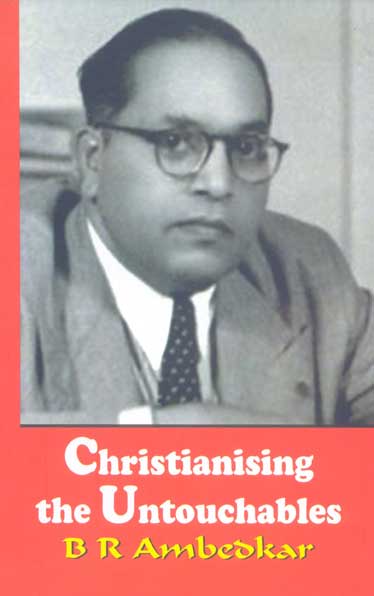 back to the list of books
back to the list of booksBR Ambedkar
Christianizing the Untouchables
"At some time between the years 180 and 190 the Bishop of Alexandria received an Appeal from the Christians in India to send them a Missionary and Pantoenus was accordingly sent. "In truth, it must be acknowledged that the Christianity of the English in India was, at this time, in a sadly depressed state. Men drank hard and gamed high, concubinage with the women of the country was the rule rather than the exception.
"But no fear of resistance could divert him from his purpose; and he openly denounced the Patriarch of Babylon as a pestilent schismatic, and declared it a heresy to acknowledge his supremacy. He then issued a decree forbidding all persons to acknowledge any other supremacy than that of the Roman Pontiff, or to make any mention of the Syrian Patriarch in the services of their Church; and, this done, he publicly excommunicated the acknowledged head of the Syrian Churches, and called upon the startled Archdeacon to sign the writ of excommunication. Frightened and confused, the wretched man put his name to the apostate document; and it was publicly affixed to the gates of the church.
"The attempt to open the door to the Missionaries failed and the Missionary was shut out from India till 1813. Not only was he shut out but the Company's Government kept a strict vigil upon the activities of such stray missionaries who contrived to go to India without their license."
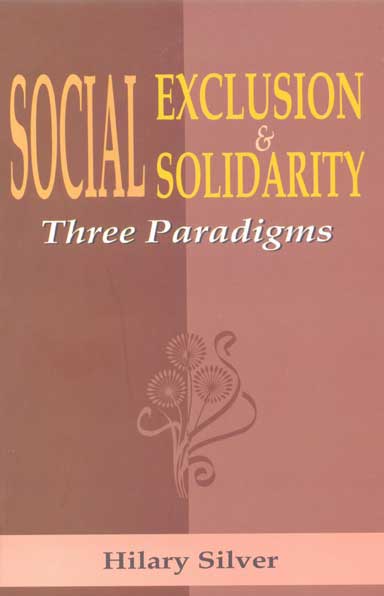 back to the list of books
back to the list of booksHilary Silver
Social Exclusion & Social Solidarity:Three Paradigms
"This article traces the evolution of the term "exclusion" over time, notably but not exclusively in France. It focuses on definitions of the term indicating its numerous connotations, and distinguishes three paradigms within which social exclusion is embedded (solidarity, specialization and monopoly) presenting the theory underlying each, with clarificatory remarks. Finally, the economic dimensions of the three paradigms are discussed. In conclusion, questions regarding the significance of exclusion in politics and social policy are raised. "In symbolic politics, the power to name a social problem has vast implications for the policies considered suitable to address it. Thus, in response to the opposition's emphasis on the new poverty and inequality, the Government took to speaking of "exclusion".
 back to the list of books
back to the list of booksJohn Dewey
Moral Principles in Education
"In the conduct of the schools, it is well for the citizens to determine the ends proper to them, and it is their privilege to judge of the efficacy of results.
"Instances are plentiful to show that well-meaning people, competent enough to judge of the aims and results of school work, make a mistake in insisting upon the prerogative of directing the technical aspects of education with a dogmatism that would not characterize their statements regarding any other special field of knowledge or action.
"There is nothing in the nature of ideas about morality, of information about honesty or purity or kindness which automatically transmutes such ideas into good character or good conduct.
"Training is pathological when stress is laid upon correcting wrong-doing instead of upon forming habits of positive service. Too often the teacher's concern with the moral life of pupils takes the form of alertness for failures to conform to school rules and routine."
 back to the list of books
back to the list of booksPandita Ramabai
The High Caste Hindu Woman
As regards social customs, it may be said that the daily life and habits of the people are immensely influenced by religion in India. There is not an act that is not performed religiously by them; a humorous author has said, with some truth, that “the Hindus even sin religiously”……..
For example, eating the food prepared by persons of an inferior caste is not only not forbidden by the sacred laws, but is sanctioned by them……
At the present day, however, time-honored custom overrules the ancient laws, and says that a person must not eat anything cooked nor drink water polluted by the touch of a person of inferior caste. Hindus transgressing this rule instantly forfeit their caste, and must undergo some heavy penance to regain it.
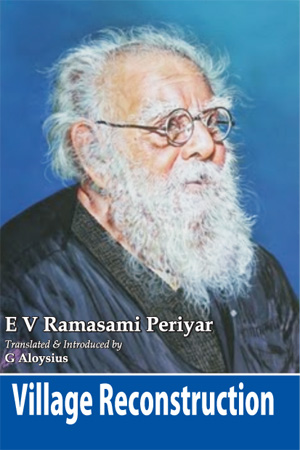 back to the list of books
back to the list of booksEV Ramasami Periyar
Village Reconstruction
E V Ramasami Periyar (1879-1973), the great anti-caste and feminist ideologue of the previous century, like many of his colleagues elsewhere, started out his political career as a Congressman…….
However, to many of the policies and programs of the Congress, Ramasami had his own, usually more direct and radical interpretation. For example, untouchability meant for him caste-varna itself and the eradication he dreamed was that of the phenomenon itself. Again, prohibition for him was a social mission as drunkenness was a mass evil. But he found, on the other hand, the Congressmen trying to isolate physical-literal untouchability as the evil to be abolished and not caste or itself….
 back to the list of books
back to the list of booksG. Aloysius
Conceptualising the Region
The General Context: Nation-State in Theory & Practice
While most social scientists, at least of this part of the world, are pre-occupied with the evidently pervasive and apparently oppressive phenomenon of globalization of economies and knowledge-forms, the parallel and equally persistent processes of differentiation of cultures and fragmentation of consciousness are going relatively unnoticed……
The formation of the nation-state system across the globe from the late eighteenth to the twentieth centuries, in its conception had this idea that, individual and formally recognizable cultures, treated as so many corporate personalities ought to be conceded the right and power of determining their own present and future. In international practice, this idea was formulated and accepted as the doctrine of ‘self-determination.’………..
Region-sensitivity and regional expressions are certainly on the rise everywhere in today’s socio-political world. And its context invariably and unambiguously is the ever-widening gap between the promise and performance of the nation-state.
 back to the list of books
back to the list of booksSukhadeo Thorat
Caste Social Exclusion & Poverty
This paper attempts to address two interrelated issues. First, it tries to conceptualize the nature and dimensions of the “Exclusion-Linked Deprivation” of socially disadvantage groups particularly the dalits in Indian society……
Further elaboration of the concepts of exclusion and discrimination has come from the mainstream economics in the context of race and gender……
Unlike many other societies, the caste system does not recognize the individual and his/her distinctiveness as the centre of the social purpose. In fact, for the purpose of rights and duties, the unit of the Hindu society is not an individual (even the family is not regarded as a unit in the Hindu society, except for the purposes of marriages and inheritance).
 back to the list of books
back to the list of booksUma Chacravarti
Brahmanical Patriarchy
Caste hierarchy and gender hierarchy are the organising principles of the brahmanical social order and are closely interconnected…..
The purity of women has a centrality in brahmanical patriarchy, as we shall see, because the purity of caste is contingent upon it……
A similar exploration of the process of establishing control over women's sexuality in a highly stratified and closed structure could be useful in analysing the connections between caste, class, patriarchy, and the state in the brahmanical texts of early India. The structure that came into being has shaped the ideology of the upper castes and continues to be the underpinning of beliefs and practices extant today.
 back to the list of books
back to the list of booksKancha Ilaiah
Caste & the Muslims
The other major area is to investigate the positive influence of Muslim institutions like restaurants, hotels, tea stalls, Masjids, Dargahs on caste and untouchability. The Muslim intellectuals also need to come out of the fear complex, generated during the Partition and communal riots that the Hindutva forces periodically organise from to time to time. ……
After demolition of the Babri-Masjid, a whole range of Hindu-cum-secular intellectuals came in support of the Muslim right to exist in this country with dignity. But those intellectuals did not pose the question whether Muslims—who constitute more or less equal number to that of the Hindu upper castes, who have been ruling this country ever since India achieved its freedom—have the equal right to rule India…..
Following the Mandal movement, no Muslim scholar wrote even one serious book formulating an Islamic understanding of caste and untouchability. How do bridges get built among communities? They get built only when one oppressed community gets the support of another and each relates to the other on a day-to-day basis.
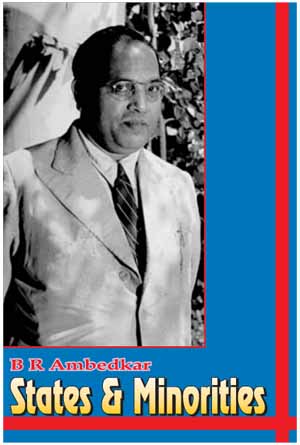 back to the list of books
back to the list of booksBR Ambedkar
States & Minorities
Among the many problems the Constituent Assembly has to face, there are two which are admittedly most difficultl. One is the problem of the Minorities and the other is the problem of the Indian States......
After a State has been admitted into the Union as a State no new State shall be formed or created within its jurisdiction nor any new State shall be formed by the junction of two or more States or parts of States without the consent of the Legislatures of the States concerned as well as of the Union Legislature.....
The right of a citizen to vote shall not be denied or abridged on any account other than immaturity, imprisonment and insanity.
 back to the list of books
back to the list of booksEmmanuel Kant
On Education
The love of freedom is naturally so strong in man, that when once he has grown accustomed to freedom, he will sacrifice everything for its sake. For this very reason discipline must be brought into play very early; for when this has not been done, it is difficult to alter character later in life. Undisciplined men are apt to follow every caprice. …….
The uncultivated man is crude, the undisciplined is unruly. Neglect of discipline is a greater evil than neglect of culture, for this last can be remedied later in life, but unruliness cannot be done away with, and a mistake in discipline can never be repaired. It may be that education will be constantly improved, and that each succeeding generation will advance one step towards the perfecting of mankind; for with education is involved the great secret of the perfection of human nature.
 back to the list of books
back to the list of booksK Purushotham
Black Lilies: Telugu Dalit Poetry
In the entire history of Telugu literature, dalits have never been written about positively except by the medieval mystics - Potuluri Veerabrahmam, a sudra social reformer and Yogi Vemana, a non-brahmin - both of whom questioned social evils…..
When everyone subordinates you
your chances of reigning the empires would be ripe
the same people who scolded you
will be cured of their stupidity
and will themselves begin to adore you ......
One is a romantic poet, the other a poet with a heart of stone
one more, a poet who weeps -
Together, they console each other.
How will this Indian nation flourish?
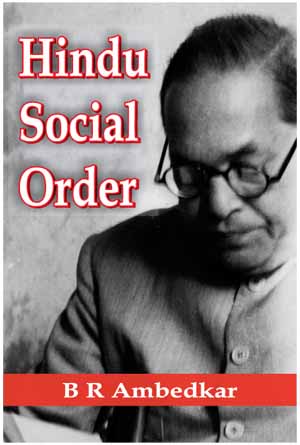 back to the list of books
back to the list of booksBR Ambedkar
Hindu Social Order
The first kind of liberty is of course fundamental. Not only fundamental it is also most essential. About its value, there can be no manner of doubt. The second kind of liberty, which may be called freedom of opinion, is important for many reasons. It is a necessary condition of all progress: intellectual, moral, political and social.....
The most extensive and wild manifestation of this spirit of isolation and separation is of course the caste-system. It is understandable that caste in a single number cannot exist. Caste can exist only in plural number. There can be castes. But there cannot be such a thing as a caste. But granting that theoretically castes must exist in plural number how many castes should there be? Originally, there were four only. Today, how many are there? It is estimated that the total is not less than 2000. It might be 3000. This is not the only staggering aspect of this fact. There are others. Castes are divided into sub-castes. Their number is legion.
 back to the list of books
back to the list of booksDouglas Kellner
Toward a Critical Theory of Education
As the new millennium unfolds, the human species is undergoing one of the most dramatic technological revolutions in history, one that is changing everything from the ways that people work to the ways that they communicate with each other and spend their leisure time. The technological revolution centers on computer, information, communication, and multimedia technologies, is often interpreted as the beginnings of an “information society,” and ascribes education a central role in every aspect of life……..
Critical theory adopts a Hegelian concept of theory by developing holistic theories that attempt to conceptualize the totality of a given field, but that importantly make connections and articulate contradictions, overcoming idealist or reductive theories of the whole. …..
In their 1848 “Communist Manifesto,” Marx and Engels made liberation of the working class from bourgeois education and expanded public education for the working class one of their major demands, offering as a key measure to constructing socialism: “Public education of all children free of charge. Elimination of children’s factory labor in its present form. Combination of education with material production, etc. etc.” (Marx and Engels 1978: 490).
 back to the list of books
back to the list of booksJayati Ghosh
Social Policy in Indian Development
It is increasingly evident that social policy has a significance that goes beyond even the valid concerns about basic equity and minimal living standards, which form part of the social and economic rights of citizens……..
The second important, and related, role of social policy is of course that of legitimisation – not only of the state, but of the development project itself…….
It is now widely recognised that the universal provision of good education and basic health services is an important condition for raising aggregate labour productivity levels.
 back to the list of books
back to the list of booksDouglas Kellner
Cultural Marxism & Cultural Studies
In general, for a Marxian approach, cultural forms always emerge in specific historical situations, serving particular socio-economic interests and carrying out important social functions. For Marx and Engels, the cultural ideas of an epoch serve the interests of the ruling class, providing ideologies that legitimate class domination……….
Thus, Lukacs’ readings of Balzac, Zola, Thomas Mann, Kafka, and other writers provide models of how to read and analyze critical texts in specific socio- historical situations.
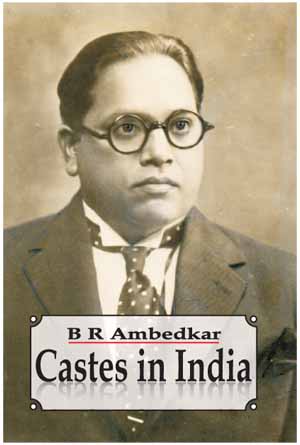 back to the list of books
back to the list of booksBR Ambedkar
Castes in India
Nothing is therefore more important for you to remember than the fact that endogamy is foreign to the people of India. The various Gotras of India are and have been exogamous: so are the other groups with totemic organization…….
If a group desires to make itself endogamous a formal injunction against intermarriage with outside groups will be of no avail, especially if prior to the introduction of endogamy, exogamy had been the rule in all matrimonial relations. Again, there is a tendency in all groups lying in close contact with one another to assimilate and amalgamate, and thus consolidate into a homogeneous society. If this tendency is to be strongly counteracted in the interest of Caste formation, it is absolutely necessary to circumscribe a circle outside which people should not contract marriages.
 back to the list of books
back to the list of booksFernando Tola & Carmen Dragonetti
Brahmanism & Buddhism
The philosophical principles maintained by Brahmanism and Buddhism, their conceptions of man and of the destiny of man, which were the foundation of those two antithetic types of society, had to be also equally opposed .……
“The king must watch that mixture of castes be not produced,
therefore women must be especially protected from mixture.”
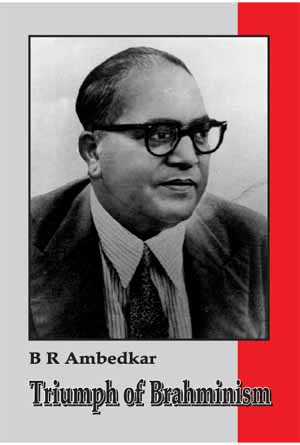 back to the list of books
back to the list of booksBR Ambedkar
Triumph of Brahminism
The first circumstance relates to the conduct of Pushyamitra himself. There is evidence that Pushyamitra after he ascended the throne performed the Ashvamedha Yajna or the horse sacrifice, the Vedic rite which could only be performed by a paramount sovereign……
Another piece of evidence which shows that the origin and purpose of the revolution by Pushyamitra against the Mauryas was to destroy Buddhism and establish Brahmanism is evidenced by the promulgation of Manu Smriti as a code of laws…….
First thing to be noted is that the Manu Smriti is a new Code of law promulgated for the first time during the reign of Pushyamitra. There was a view once prevalent that there existed a code known as the Manava-Dharma-Sutra and that what is known as Manu Smriti is an adaptation of the old Manava Dharma Sutra. This view has been abandoned as there has been no trace of any such work. Two other works existed prior to the present Manu Smriti.
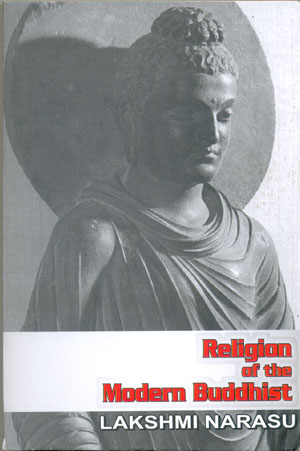 back to the list of books
back to the list of booksLakshmi Narasu
Religion of the Modern Buddhist
“With the increase in variety and intensity of voluntary activity grows and expands the individual self. All this activity is only the result of a highly developed and complex neuronic machinery.
In a general way, it is society that, by the power it wields over the minds of its members, arouses in them the notion of the divine. Everything obligatory is of social origin, and all authoritative religion is a social phenomenon.
Men may differ in the degree of their capacities, but they posses capacities of the same type. Thinking is not the function of an exclusive caste or race nor is it a function that can be inherited.”
“Professor Narasu…. fought European arrogance with patriotic fervor, orthodox Hinduism with iconoclastic zeal, heterodox Brahmins with a nationalistic vision and aggressive Christianity with a rationalistic outlook, all under the inspiring banner of….the teaching of the great Buddha” – BR Ambedkar
 back to the list of books
back to the list of booksTeun A. Van Dijk
Principles of Critical Discourse Analysis
This paper discusses some principles, aims and criteria of a critical discourse analysis (CDA). It tries to answer (critical) questions such as ‘What is critical discourse analysis (anyway)?’, ‘How is it different from other types of discourse analysis?’, ‘What are its aims, special methods, and especially what is its theoretical foundation?’ Also, it acknowledges the need to examine, in rather practical terms, how one goes about doing a critical analysis of text and talk.
 back to the list of books
back to the list of booksPaul Clavel
Region in Geography
This paper offers an overview as to the way in which the idea of the region in geography has changed, drawing as it does so, on reflections developed by the author over some forty years now (Claval, 1968; 1989; 1992; 1998; 2000; 2006).
The last decade of the 19th century and the first of the 20th were a time in which the regional approach progressed greatly—as did the whole of human geography: open curiosity, the systematic use of the new methods then available to detect the existence of homogeneous or nodal areas, and the discovery of the multiplicity of territorial divisions in any country all gave many indications as to the complexity of regional organization.
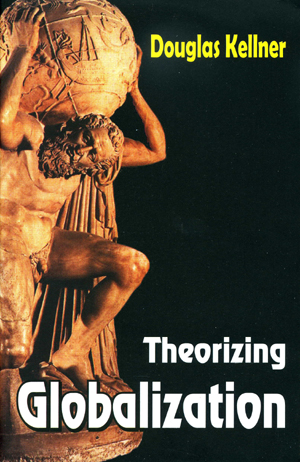 back to the list of books
back to the list of booksDouglas Kellner
Theorizing Globalization
Marxists, world systems theorists, functionalists, Weberians, and other contemporary theorists are converging on the position that globalization is a distinguishing trend of the present moment.
The technological revolution presupposes global computerized networks and the free movement of goods, information, and peoples across national boundaries. Hence, the Internet and global computer networks make possible globalization by producing a technological infrastructure for the global economy. Computerized networks, satellite-communication systems, and the software and hardware that link together and facilitate the global economy depend on breakthroughs in microphysics.
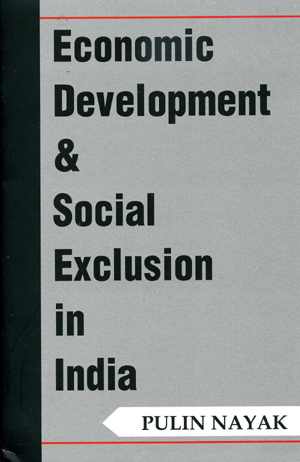 back to the list of books
back to the list of booksPulin Nayak
Economic Development & Social Exclusion in India
In the early writings on development economics in the postwar years, there was an inherent belief among the pioneers that the process of development would necessarily bring about an improvement in the wellbeing of all individuals. As the process of development proceeded, it became amply clear that the above belief was at best naïve, and that the process of development necessarily bypasses or excludes some individuals or groups.
The notion of entitlement refers to the actual or effective empowerment of a person to trade his original endowment of labour power and other factor incomes for food and other basic necessities. Thus it is not the total production of basic necessities that would make a material difference to the inherent health or strength of a community so much as the distribution of this total amongst the population.
 back to the list of books
back to the list of booksLiah Greenfield
Nationalism & Modernity
Tradition weighs heavily on the study of modern society. Our views of it are still to a large extent defined by the ideas of our (disciplinary) fathers.
The modernization theory of the 1950s and 1960s, composed as it was predominantly of structuralist-functionalisim as well as Marxist and neo-Marxist approaches (which, it should be kept in mind, are also structuralist and functionalist), was at its basis a variety of historical materialism.
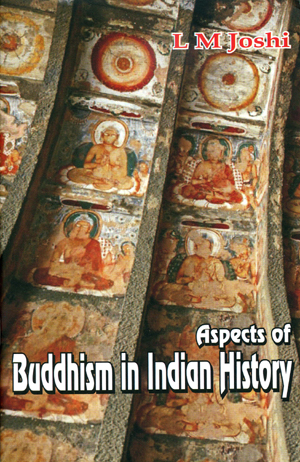 back to the list of books
back to the list of booksLM Joshi
Aspects of Buddhism in Indian History
Even today, 199 years after the foundation of the Asiatic Society, 81 years after the foundation of the Maha Bodhi Society of India, 71 years after the foundation of the Archaeological Survey of India, the process of the discovery of Buddhism in India is still going on.
We need hardly mention that the earliest and the best painting of ancient India is the Buddhist painting; that the best sculpture of the golden days of ancient Indian culture is the Buddhist sculpture; that the earliest historical sculpture of India is also the Buddhist sculpture. In the field of architecture too, Buddhism was the pioneer source of inspiration.
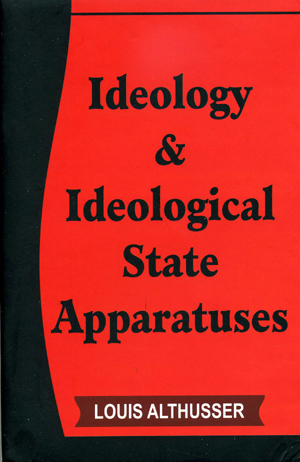 back to the list of books
back to the list of booksLouis Althusser
Ideology & Ideological State Apparatuses
(Notes towards an Investigation)
It is easy to see that this representation of the structure of every society as an edifice containing a base (infrastructure) on which are erected the two ‘floors’ of the superstructure, is a metaphor, to be quite precise, a spatial metaphor: the metaphor of a topography (topique).[5] Like every metaphor, this metaphor suggests something, makes some thing visible. What? Precisely this: that the upper floors could not ‘stay up’ (in the air) alone, if they did not rest precisely on their base.
Even after a social revolution like that of 1917, a large part of the State Apparatus survived after the seizure of State power by the alliance of the proletariat and the small peasantry: Lenin repeated the fact again and again.
 back to the list of books
back to the list of booksBenedict Kingsbury
Indigenous Peoples in International Law
The development of "indigenous peoples" as a significant concept in international practice has not been accompanied by any general agreement as to its meaning, nor even by agreement on a process by which its meaning might be established.
One of the central questions in the current controversy is whether the concept of "indigenous peoples" has any application to people in the group of major Asian states whose governments deny its relevance.
 back to the list of books
back to the list of booksJohn Harriss
Researching Poverty
Mainstream poverty research – even after experts had generally accepted the need for a multidimensional view of poverty that goes beyond income/consumption measures to take account of holdings of assets and hence of longer run security (see Chambers 1988, 1992) – has generally failed to address the dynamic, structural and relational factors that give rise to poverty.
Many possible aspects of deprivation are left out of the conventional poverty measurement, and it was Chambers who argues that poverty has come to be equated with what can most readily be measured. ‘Conceptually’, he suggests, ‘professionals are caught in their own poverty trap’ (1988: 6). And when it comes to action as well, he notes that professionals also tend to focus on poverty defined in terms of lack of income, and perhaps physical weakness and isolation, rather than on those aspects of poverty that have to do with vulnerability and powerlessness, perhaps because ‘Members of elite groups … find [these] less threatening aspects of deprivation to measure and tackle’ (1992).
 back to the list of books
back to the list of booksBrian K Smith
Veda & Varna
What do canon (Veda) and caste (or at least the underpinnings of caste found in the varna system) have to do with one another? How are these two supposedly crucial qualities of Hinduism linked?
Four different orders of things and beings, each order divided into three parts, are here depicted as coeval: the three cosmological worlds of earth, atmosphere, and sky (the spatial order); three natural elements or "lights" (fire, wind, and sun) that are identical to three deities (Agni, Vayu, and Surya/Aditya);20 the three Vedas; and the three verbal essences of the Vedas (bhuh, bhuvah, and svah).
 back to the list of books
back to the list of booksDavid Hume & Andrew Shepherd
Conceptualizing chronic Poverty
The central focus of this exercise has become the Millennium Development Goals (MDGs). These now comprise eight goals, 18 targets and 48 indicators (OECD, 2001).
As a rough working definition we propose that chronic poverty be viewed as occurring when an individual experiences significant capability deprivations for a period of five years or more. Specific elements of this definition are explored in detail in the sections that follow. Here four main points need to be noted.
 back to the list of books
back to the list of booksJayati Ghosh
Poverty Reduction in China & India
It should be noted, however, that despite the similarity of the current international hype about their future economic prospects and also despite their obvious differences, both China and India face rather similar economic problems at present, especially with respect to the sustainability of growth and the emerging inequalities.
The Chinese economy has grown at an average annual rate of 9.8 per cent for two and a half decades, while India’s economy has grown at around 5–6 per cent per year over the same period.
 back to the list of books
back to the list of books Bonojoy Sen
Legalising Religion
According to the Court, “what constitutes the essential part of a religion is primarily to be ascertained with reference to the doctrines of that religion itself”….The essential practices test was one of the major tools whereby the Supreme Court sanctioned a complex regulatory regime for Hindu Temples……In conflating Hindutva with Hinduism, the Court ignored the sacred soil and birth/race aspects of Hindutva as defined by Savarkar and Golwalkar.

back to the list of books
B. Subbarao
Regions & Regionalism In India
Within the country, the wide inviting alluvial plains, opening on to the main gateways to Western Asia, abut on an older land mass of Peninsular India, cut up into important river basins separated by ridges of hills and forests…..The very genesis of our modern linguistic units in their historical setting is one of the most important proofs of these latent and dormant geographic factors, which in a proper political environment led to the present pattern…..Going through Indian history in a rapid survey, one finds that the practical realization of this vital ideal suffered setbacks due to the strength of the centrifugal forces.

back to the list of books
William Bristow
Enlightenment
If the founder of the rationalist strain of the Enlightenment is Descartes, then the founder of the empiricist strain is Francis Bacon (1561-1626)……Kant saves rational knowledge of nature by limiting rational knowledge to nature….Samuel Clarke, an influential rationalist British thinker early in the Enlightenment, undertakes to show in his Discourse Concerning the Unchangeable Obligations of Natural Religion (1706), against Hobbes explicitly, that the absolute difference between moral good and moral evil lies in the immediately discernible nature of things, independently of any compacts or positive legislation by God or human beings.

back to the list of books
B.R. Ambedkar
Reminiscences of Untouchability
This incident has a very important place in my life….. This scene of a dozen Parsis armed with sticks lined before me in a menacing mood and myself standing before them with a terrified look imploring for mercy is a scene which so long a period as 18 years has not succeeded in fading away…..But an idea came to me of writing to the Mamlatdar about the fate that had befallen me and telling him how to dispose of my body in case I was killed by the crowd.

back to the list of books
B.R. Ambedkar
Speeches at Rond Table Conference
We are often reminded that the problem of the Depressed Classes is a social problem and that its solution lies elsewhere than in politics……My first submission to this Committee, then, is that it should realize that although, to use an illustration, the minorities are all in the same boat, yet the most important fact to remember is that they are not all in the same class in the same boat; some are travelling in ‘A’ class, some in ‘B’ class and some in ‘C’ or ‘D’ class but are actually in the hold.

back to the list of books
Asma Barlas
Quran & Women's Liberation
Most anti-women ideas among Muslims, as well as practices like female circumcision and stoning to death for adultery, pre-date Islam and do not originate in, nor are they endorsed by, the Quran. ………Although many feminists condemn Islam’s “uncompromising monotheism,” it is this very inflexibility about the primacy of God’s rule that opens up possibilities for radical equality for women inasmuch as God’s rule is not based in differentiation, hence in a theory of sexual inequality.
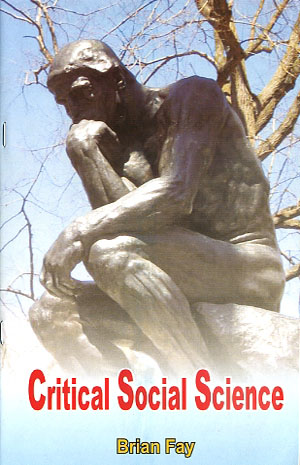
back to the list of books
Brian Fray
Critical Social Science
In this view, humans are fallen creatures in the sense that our being is so constituted that it is natural for us to live in a corrupt and uninformed state……There is a further defining element of the theory intended to fulfill the role for scientific knowledge envisioned by the humanist variant, which I want to introduce here in a preliminary way……Laid out in this way, one can see that a critical theory of society must actually consist of four different theories which, when unpacked, are comprised of ten sub-theories.

back to the list of books
Hilary Silver
The Process of Social Exclusion
Chronic poverty, like social exclusion, is embedded in the social relations that generate and maintain it…….Welfare states helped to institutionalize a common life-course among citizens of the same country, regimenting school, work, family formation, retirement, and other social activities into a common normative sequence……With European and global market integration, national bases of social solidarity have been eroding.

back to the list of books
J.V. Stalin
Marxism & the Question of Nationalities
The struggle began and flared up, to be sure, not between nations as a whole, but between the ruling classes of the dominant nations and of those that had been pushed into the background ……It is not difficult to see that this programme retains certain traces of “territorialism,” but that in general it gives a formulation of national autonomy…..In short, since culture Is not territory, and territory is not culture, cultural-national autonomy is required.

back to the list of books
Ashok Rudra
Against Feudalism
Serfdom, with the associated institution of the manor, is generally recognized as one of the central features of European feudalism in its ideal form……..Most of the evidence advanced by protagonists of the feudal thesis, while not throwing much light on production-relations, relate to decentralization of authority and intermediary rights over land which are suggested to be parallels of the institution of vassalage and fief, typical of European feudalism….It is not only in the relation between the direct producers and the appropriators of surplus that the Brahmanic ideology with its jati Dharma and the theory of ‘karma’ eliminated the need of violence; the same is true of every other social relation of oppression.
 back to the list of books
back to the list of books Romila Thapar
Syndicated Hinduism
“Hindu missionary organizations, such as those attached to the Ramakrishna Mission, the Arya Samaj, the RSS and the Vishva Hindu Parishad, taking their cue from Christian missionaries are active among the adivasis , mainly Scheduled Castes and tribes. They are converting these latter groups to Hinduism as defined by the upper caste movements of the last two centuries……
But the significance of dharma was that it demarcated sharply between the upper castes − the dvija or twice-born – for whom it was the core of the religion and the rest of society whose conforming to dharma was left somewhat in abeyance, as long as it did not transgress the dharma of the upper castes."
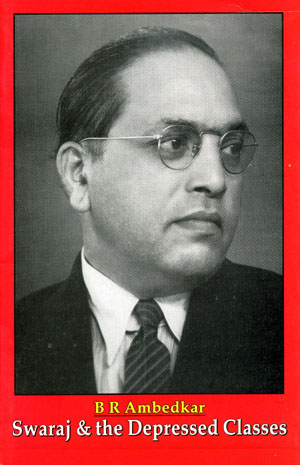
back to the list of books
B.R. Ambedkar
Swaraj & the Depressed Classes
"The phrase adequate representation is on the lips of every minority in India. But owing to the difficulty of defining it in quantitative terms it has, in its vague and indefinite form, becomes a field for acrimonious contention……
But the minorities must bear in mind that although we are today ”riven by sects and atomized by castes”, our ideal is united India. This is an ideal, which no minority, which claims to be heard can fail to place in its forefront. That being so, it follows that every minority in formulating the safeguards it needs, must take care that they will not be incompatible with ."

back to the list of books
Maren Bellwinkel-Schempp
Ishvardatt Medharthi Life & Message
"His belief in religious universalism was strong, he believed that all religions preached non-violence, brotherhood, equality and compassion…
The most interesting time in Medharthi’s life was his engagement as Ambedkar’s Pali teacher, but his biographer, Bhoj Dev Mudit, who was the favourite of Medhrthi’s five disciples, remembers very vividly how they used to go to Delhi over the weekends by train and visit Baba Sahib.
Time and again Medharthi does affirm his membership of the Arya Samaj and pays due respect to the founder Swami Dayanand Saraswati. However, in the matter of interpreting the Vedas concerning varnavyavastha, the author is relentless and does not hesitate to take the founder to task."
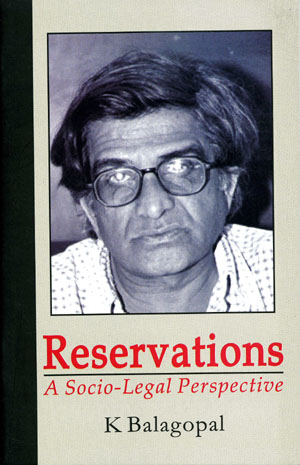
back to the list of books
K. Balagopal
Reservations A Socio-Legal Perspective
"Another thing that has equally surprised observers is the inability of the BCs to unite and defend their rights. Muralidhar Rao estimated their number as 52 per cent of the population.
That non-recognition goes with the appropriation the material wealth produced by them. …. If a democratic revolution had properly taken place in India, and if modern science and technology had grown out of the knowledge the working people possess, perhaps we would have broken philosophically with this Brahminical epistemology, but instead of that we have completely destroyed even the basis for the traditional knowledge the working people of this country possess and grafted on to our economy the science and technology borrowed from abroad in the form of textbooks, which again has been monopolized by the very same Brahmins who have established a monopoly of knowledge."
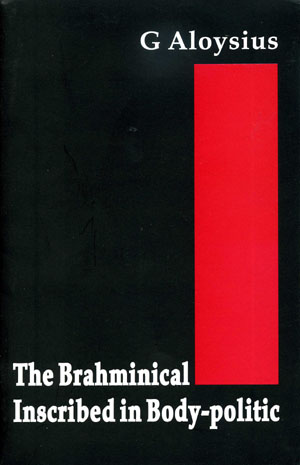
back to the list of books
G. Aloysius
The Brahminical Inscribed in Body-politic
"The crucial point in this explanation, for the purpose on hand is this: that what came to be viewed and valorized as nationalism (that is, anti-colonialism) here, arose at the very juncture of the Imperialists’ attempts at larger inclusion (for whatever reason) in response to the demand; of the hitherto excluded/subalternised masses.
Unless this root force in all its complex dimensions, is researched, recognized, related, resisted and finally resolved, the subcontinent, one could conclude, would for a long time to come be constrained to dwell in the nether world of what could truly be described as post-colonial predicament."

back to the list of books
John Stuart Mill, Lord Acton, Ernest Renan
Nation & Nationality (Three Essays)
"The nationality formed by the state, then, is the only one to which we owe political duties, and it is, therefore, the only one which has political rights.
I am very fond of ethnography, for it is a science of rare interest; but, in so far as I would wish it to be free, I wish it to be without political application. In ethnography, as in all forms of study, systems change, this is the condition of progress. States’ frontiers would then follow the fluctuations of science."
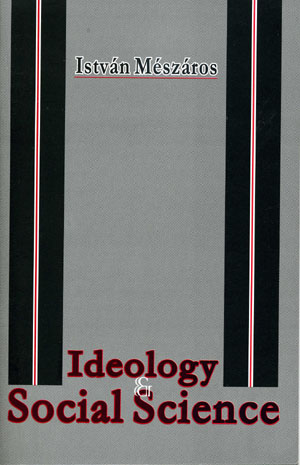
back to the list of books
István Mészáros
Ideology & Social Science
"The choice of such defining characteristics is however, far from being “value-free”, although on the surface it seems to express a self-evident truth: namely that capitalism and the investment of private capital are linked together.
This is why it becomes possible for a Keynes in the challenging circumstances of the General Crisis and in its aftermath, to produce some partial scientific results within the boundaries of his overall approach, notwithstanding his total identification with the standpoint of capital as we have seen above. As a general theory and “refutation” of the Marxian approach, his system is devoid of other than purely apologetic foundation."
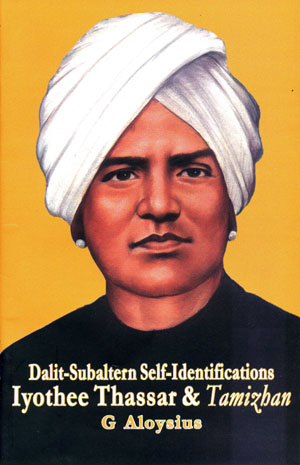
back to the list of books
G. Aloysius
Dalit-Subaltern Self-Identifications Iyothee Thassar & Thamizhan
"The parallel and often counter mobilizations of the countless number of colonially subalternised and Sanskritic-Brahminically excluded social groups had been slow, attenuated and sporadic. As suggested above, these latter – the majority – had hoped for and initially made significant efforts towards egalitarian merger into a larger socio-political identity, but soon enough learned that a new sociality, there was not going to be, and the call by the Sanskritic-Brahminical was unambiguously for subordinate inclusion.
There however, was no unpredictability as to the stand the journal would take on the different aspects of the issue: for one thing, the earlier Tamizhan had laid out comprehensively its own ideological stand on all the major issues of history, culture and society; and as modern politics unfolded itself on the basis and out of these, there definitely was going to be a continuity of perspective in the new journal; secondly the broad polarization that was taking shape within society at large was also a continuity in the sense that it was already visible in Iyothee Thassar’s times, and the later developments in broad outlines at least, were only elaborations of the earlier beginnings."

back to the list of books
Parimala V. Rao
Educate Women & Lose Nationality
"The campaign led by Phule and reformers for the implementation of compulsory education was opposed by Tilak.
“You take away a farmer’s boy from the plough, the blacksmith’s boy from the bellows and the cobbler’s boy from his awl with the object of giving him liberal education…. And the boy learns to condemn the profession of his father, not to speak of the loss to which latter is put by being deprived of the son’s assistance at the old trade.”
The nationalists insisted that the Gita should form the basis of national education, and opposed “un-exclusive privilege being given to un-denominational teaching it’."

back to the list of books
B.R. Ambedkar
Philosophy of Hinduism
"In life and preservation of life consists the religion of the savage. What is however true of the religion of the savage is true of all religions wherever they are found for the simple reason that constitutes the essence of religion.
These are some of the factors which determine the place and status of a caste in this Hindu hierarchical system of castes. This hierarchical organization of the caste system is responsible for producing a social psychology which is noteworthy. In the first place it produces a spirit of rivalry among the different castes for dignity. Secondly it produces an ascending scale of hatred and descending scale of contempt."
 back to the list of books
back to the list of books F Franco & Sherry Chand
Varna Ideology as Social Practice
"The term ideology has often been used interchangeably or synonymously with culture ……The polemical nature of ay ideological discourse implies that of its very it tends to displace, obliterate (push into oblivion) and fragment other discourses….The production of ideological discourse is characterized by the creation of specific propositions and rules meant to protect it; a process is instituted to exclude other discourses."
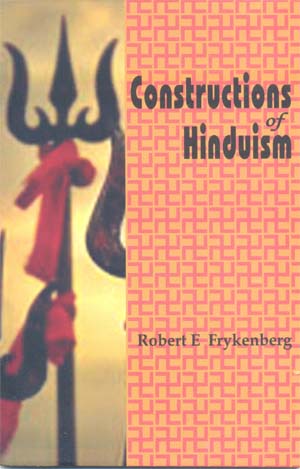
back to the list of books
Robert E Frykenberg
Constructions of Hinduism
"From another perspective, there is no single or proper sense of the term Hindu…..Thus, what one worshipped or did not worship was one’s own or one’s family’s affair…..The term “Hindu” in this sense is confusing. Even more so is the phrase “Hindu Religion”….Exactly how each separate religious or sectarian community in South Asia came to terms with this official kind of Hinduism and how each reacted to situations of momentous consequence for their future survival are questions having relevance for any consideration of later relationships between a recent, reified, communal Hinduism, which also emerged, and many communities in India."
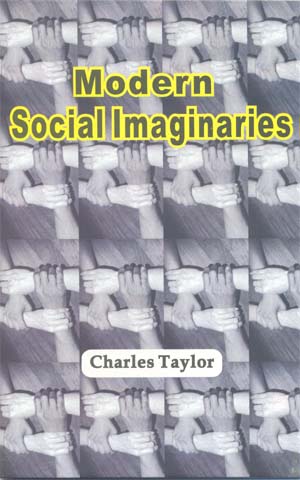
back to the list of books
Charles Taylor
Modern Social Imaginaries
"The public sphere is a central feature of modern society. So much so, that even where it is in fact suppressed or manipulated it has to be faked. ….What is this common space? It’s actually a rather strange thing…..The terms of this struggle, its peculiarly intense ideological nature, the immense importance placed on theoretical justifications and models of right government, during those days when the urgent practical dangers of foreign invasion and internal counterrevolutionary insurrection seemed to demand their place at the top of the agenda; these are to be understood in this context."
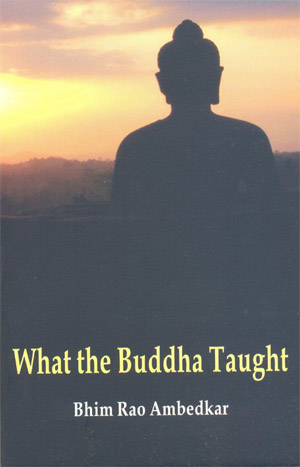
back to the list of books
Bhim Rao Ambedkar
What the Buddha Taught
"If God is omnipotent and is also the efficient cause of creation, then because of this man cannot have any desire to do anything, nor can there be any necessity to do anything, not can he have the will to do anything or to put forth any effort….The general arguments he advanced in support of his denial of the soul were the same as those which he advanced in support of his denial of the existence of God."

back to the list of books
Patricia Uberoi
Your Law & My Custom
"As is well known, the enactment of the new Hindu Law Code in the mid-1950s was a tremendously controversial affair that stretched over more than a decade…..South India as a region has long been known for its singular rules of marriage which, along with other related practices, appear to have had the effect of moderating the sternly patrilineal emphasis of the rules and practices of Indo-Aryan kinship."

back to the list of books
Max Horkheimer
Traditional & Critical Theory
"The traditional type of theory, one side of which finds expression
in formal logic, is in its present form part of the production process
with its division n of labor….It is the task of the critical theoretician
to reduce the tension between his own insight and oppressed
humanity in whose service he thinks."

back to the list of books
Piyasena Dissanayake
Buddhist Political Theory
"The account of the Vajjian Republic in the Maha Parinibbana Sutta is important for two reasons. On the one hand it gives a comprehensive account of the general principles and policies of a good Republican Government, while on the other, it points out the ambitious and expansionist character of the monarchs…..The property in the Sangha organization was owned in common and was shared by members of the Order according to each individual member’s needs. Socially too, every member of the Sangha enjoyed equal rights and everyone was equal before the Vinaya (Law of Discipline)."

back to the list of books
Daniel Philpott
In Defence of Self-Determination
"Chances are that the history of any group is a rich (and perhaps tragic) tale of overlapping communities, some of whom have been conquered by other communities, many of whom acquired a new dialect or language during its period of industrialization, all of whom may or may not identify with the same group that their progenitors did….. If the democratic argument for self-determination is correct, then the UN’s post-World War 11 reluctance to recognize self-determination movements needs rethinking; justice requires it."

back to the list of books
G. Aloysius
Ambedkar on Nation & Nationalism
"There is no social evil and no social wrong to which the Brahmin does not give his support. Man’s inhumanity to man, such as the feeling of caste, untouchability, unapproachability and unseeability is religion to him…. The Bania is the worst class known to history. In him the vice of money-making is unredeemed by culture or conscience."
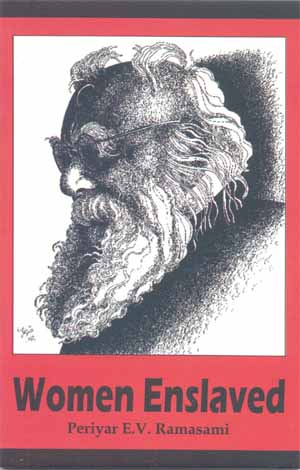
back to the list of books
Periyar E V Ramasami
Women Enslaved
"In the matter of marriage between man and women, that is, in life as husband and wife, it can be said that in no other country such atrocities are committed as in our own. If it is to be expressed in short, the philosophy of marriage here, is nothing but that which leads to the enslavement fo women by men."

back to the list of books
Meghnad Desai
India & China: An Essay in Comparative Political Economy
“….we are discussing China and India not as failures nor for their ancient wisdoms, but as dynamic modern economies. .. tell the world not to be afraid of China’s economic power. …laws to prevent their businesses outsourcing work to India’s software and telecommunication services. Together the two countries account for 19.2% of world GDP – China 11.5% and India 7.7%. This is still below their share of world population 37.5% – with China 21% and India 16.5%.”

back to the list of books
John MacDougall
Tribal Resistances
“The principal means for attaining these ends were refusals to pay rents, land seizures, and petitions to senior British officials….. the Mundas, Oraons and Santals went through experiences before 1858 that were broadly similar.”
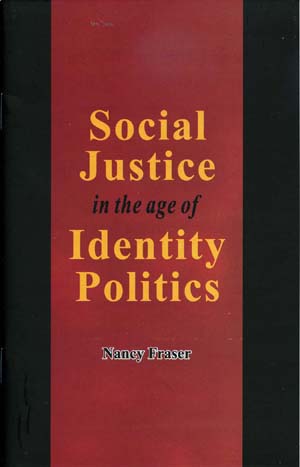
back to the list of books
Nancy Fraser
Social Justice in the Age of Identity Politics
“Here the goal, in its most plausible form, is a difference-friendly world, where assimilation to majority or dominant cultural norms is no longer the price of equal respect…. The demise of communism, the surge of free-market ideology, the rise of “identity politics” in both its fundamentalist and progressive forms - all these developments have conspired to decentre, if not to extinguish, claims for egalitarian redistribution.”

back to the list of books
Richard King
Orientalism & the Myth of Modern Hinduism
"The otherworldly Eastern mystic cannot be involved in a this-worldly political struggle without calling into question the strong cultural opposition between the mystical and the public realms……. Thus, in the modern era we find Hinduism being represented both as a globalized and all-embracing world-religion and as an intolerant and virulent form of religious nationalism."
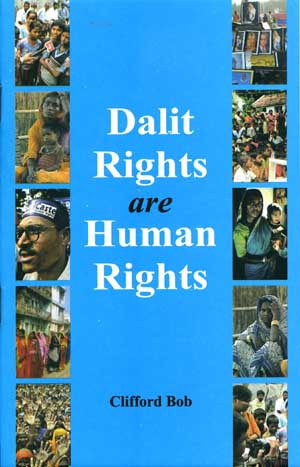
back to the list of books
Clifford Bob
Dalit Rights are Human Rights
"Until the late 1990s, the daily violence, exclusion, and humiliation suffered by millions of people in low caste groups were not treated as human rights issues by United Nations organs or nongovernmental organizations (NGOs)...... These achievements have not brought an end to caste-based discrimination, nor have they fulfilled all the goals of Dalit activists. Nonetheless, they represent significant successes in an ongoing process."

back to the list of books
Valerian Rodrigues
Dalit-Bahujan Discourse in Modern India
“Dalit-bahujan thought, particularly dalit thought, is frequently characterized as veering between assimilation and segregation in relation to mainstream nationalism..... Jotirao Phule, for instance, distinguished between Shudras and Atishudras, and combined them into shudratishudras. He argued that they together faced a common enemy, and were subjected to deprivation, humiliation and exploitation in common, although the extent of it varied.”

back to the list of books
Ronki Ram
Mangoo Ram, Ad Dharm & the Dalit Movement in Punjab
“The only movement of its kind in the North-eastern region of the country, Ad Dharm aimed at securing a separate and respectable space for the Scheduled Castes through cultural transformation, spiritual regeneration and political assertion, rather than seeking equality within the Hindu fold. Curiously, this movement, which laid the foundation of Dalit consciousness in Punjab, has failed to gain serious scholarly attention.”
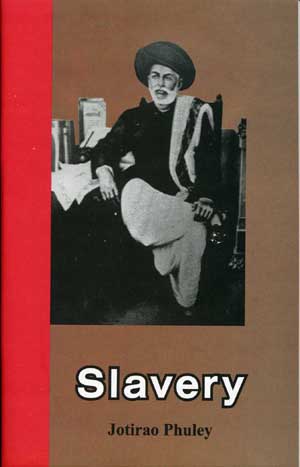
back to the list of books
Jotirao Phuley
Slavery
“The severity of the laws as affecting the Sudras, and the intense hatred with which they were regarded by the Brahmins can be explained on no other supposition but that there was, originally between the two, a deadly feud, arising as we have shown above, from the advent of the latter into this land……. They have educated many children of wealthy men, and have been the means of advancing very materially the worldly prospects of some of their pupils; but what contribution have these made to the great work of regenerating their fellowmen? How have they begun to act upon the masses? Have any of them formed classes at their own homes or elsewhere, for the instruction of their less fortunate or less wise countrymen?”
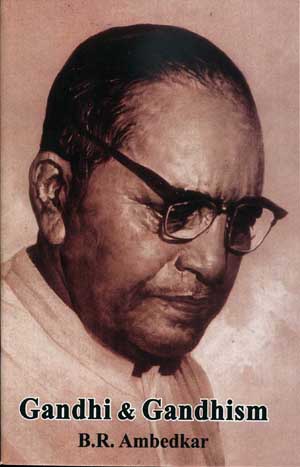
back to the list of books
B.R. Ambedkar
Gandhi & Gandhism
“Mr. Gandhi returned to India in 1915. Did he then take up the cause of the Untouchables? …….. The problem was how to make it a government by the people in a country rent into communities, majorities and minorities, who are charged not merely with social cleavages but also with social antagonisms. Having regard to these circumstances it was agreed that in India there was no possibility of government by the people unless Legislature and the Executive were framed on the basis of communal representation.”

back to the list of books
Arjan de Haan & Naila Kabeer
Social Exclusion (Two Essays)
“The concept of social exclusion can help to ground the understanding of deprivation firmly in traditions of social science analyses. The concept has made a rapid ascent onto the stages of debates on deprivation and policies that combat deprivation.”
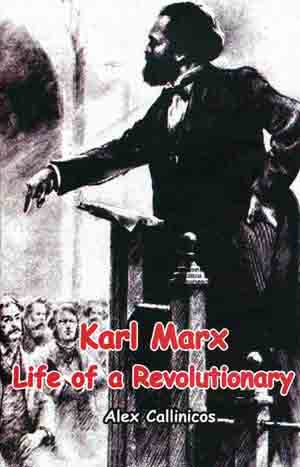
back to the list of books
About the Author
Alex Callinicos is a leading member of the Socialist Workers Party. He teaches Politics at York University and is the author of, among other things, Marxism and Philosophy (1983), Making History (1987), Against Postmodernism (1989), The Revenge of History (1991), Theories and Narratives (1995) and An Anti-Capitalist Manifesto (2003).
Extracts from “Karl Marx: Life of A Revolutionary”
“Like his fellow students, he got drunk, ran up debts, fought duels, and even spent a night in jail for brawling……“Bacon says that really important men have so many relations with nature and the world that they recover easily from every loss. I do not belong to these important men. The death of my child has deeeply shaken my heart and mind and I still feel the loss as freshly as on the first day”..… The International had little influence over the Commune, and Marx himself was doubtful whether the rising had any hope of success. But he sprang to its defence……According to Engels, after 1870 Marx studied ‘agronomics, rural relations in America and, especially, Russia, the money market and banking, and finally natural sciences such as geology and physiology.”
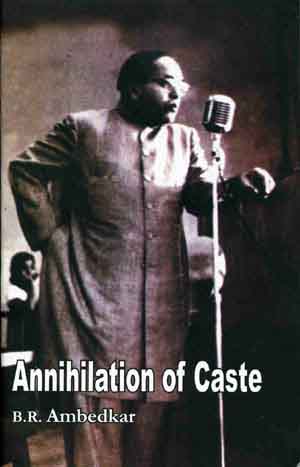
back to the list of books
About the Author
B.R. Ambedkar (1891- 1956) is certainly the tallest personality of Modern India. His monumental contribution to leading the country towards modernity in general and democratisation of the Indian society in particular, has not been adequately recognised and much less appreciated. Signs, however, are clear that the twenty-first century will increasingly bring to light the implications of his life and message in almost all spheres of national life. Ambedkar’s writings and speeches have been edited by late Vasant Moon and published by the Governemnt of Maharashta.
Extracts from “Annihilation of Caste”
“Annihilation of Caste” is the speech prepared by Ambedkar for the Annual Condference of the Jat-Pat- Todak Mandal of Lahore but not delivered owing to the cancellation of the Conference by the Reception Committee on the ground that the views expressed in the Speech – linking caste to the Hindu religious tenets and calling for their destruction if caste is to be eradicated - would be unbearable to the Conference.

back to the list of books
About the Author
Mao Tse Tung (1893-1976) was one of the greatest political leaders of Marxist orientation of the previous century. His role in bringing about meaningul social transformation in the most populous country of the world is certainly unique. His contribution to the advancement of Marxist social theory, though inadequately recognised, also has been considerable.
Extracts from “On Contradiction”
“In studying a problem, we must shun subjectivity, one-sidedness and superficiality…. To be superficial means to consider neither the characteristics of a contradiction in its totality nor the characteristics of each of its aspects; it means to deny the necessity for probing deeply into a thing and minutely studying the characteristics fo its contradiction,….”

back to the list of books
About the Author
M. Sahadevan is a lecturer in the Department of History, Victoria Government College, Palakkad, Kerala.
Extracts from “Sahodaran Ayyappan”
“Ayyappan’s primary and major commitment to internal transformation of society so as to develop a unified national political community by doing away with its hierarchical fragmantation brought him into conflict with the anti-colonial leaders lke Gandhi. But nationlism never meant to Ayyappan a mere movement for transfer of power from the British to the minority of caste-Hindus…..To speak for nationalism without social change resulting in the removal of social discrimination was mere lip service to that cause. In his firm grasp of the internal dynamics of political nationalism, both in theory and practice, as opposed to what has come to be known as cultural nationalism Sahodaran Ayyappan stands shoulder to shoulder with the great luminaries of modern India, Jotiba Phule, Ramasamy Periyar and Baba Saheb Ambedkar.”

back to the list of books
About the Author
Lal Mani Joshi was Professor at the Department of Religious Studies, Punjab University, Patiala. He is the author of Studies in the Buddhist Culture of India.
Extracts from “Brahminism, Buddhism & Hinduism”
“Much modern literature in English, French,German, Hindi and other languages has been produced on early Buddhism and its relation to Brahmanism and Hinduism. It would appear from the apparently settled posture of modern Buddhist scholarship that these problems are settled beyond all doubt and dispute. However, when we reopen these matters, with a view to restate them, we record our disagreement with the current theories of the origins of Buddhism, of its early relations with Brahmanism and of its position with regard to Hinduism.”
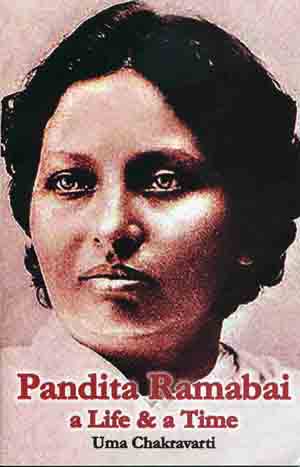
back to the list of books
About the Author
Uma Chakravarti is a historian and she lectured at Miranda House College for Women. She has worked and written on issues of caste and gender and is active in democratic rights and women’s movements. Her works include Social Dimension of Early Buddhism and Gendering Caste.
Extracts from “Pandita Ramabai: A Life and A Time”
“Over the years, particularly after she moved to Kedgaon, she experimented with ideas that could provide women with space to grow and be self-sufficient, a sort of female community for women of all castes (unlike other institutions where only Brahmana women were admitted), providing a sanctuary for them within the larger society which was dominated by men…..Increasingly, in her later years, Ramabai turned inwards much more to a gospel-based Christianity (while retaining a distance from any particular denomination) and then to an emotional rather than intellectual relationship with Christ.”

back to the list of books
About the Author
Prakash Chandra Upadhyay is a Senior Research Fellow at Nehru Memorial Museum and Library, Newe Delhi.
Extracts from “The Politics of Indian Secularism”
“The object of this paper is to unravel the entangled and often contradictory strands of Inidan secularism. To this end, it will examine the practical underpinnings of India’s dominant nationalist creed, of which secularism has been a central plank….The relationship between nationalism and secularism is of particular interest to the understaning of the working of majoritarian politics in India……During the early years of his Prime Ministership, therefore, Nehru initiated a pattern of politics in which the Indian state would respond positively to religious and communal pressures, particularly to those emanating from Hindu groups, but would keep a distance from communal parties and platforms.”

back to the list of books
About the Author
Debiprasad Chattopadhyaya (1918-1993) was an eminent Marxist philosopher from Bengal. He made extensive contribution to the research and retrieval of the materialist and rationlist traditions of ancient Inian Philosophy. His most outstanding work in this regard was the compilation and exposition of the ancient philosophy of Lokayata. He is also acclaimed for his researches in the history of science and scientific method in ancient India.
Extracts from “People, Science & Philosophy”
“One of the main points to be established in the present paper is that the prodigious first step to natuarl science was actally taken in ancient India, some time presumably before the Buddha….Platonic philosophy, with its great power and prestige, works tenaciously towards its goal of wrecking of natural science…… The humble researches of men who hoped to relieve human suffering by a patient study of nature and its evershifting phenomena have absolutely no prestige in the new theoretical climate created in Upanishadic India, where the gods are alleged to detest the direct knowledge of nature – pratyaksa dvisab.”
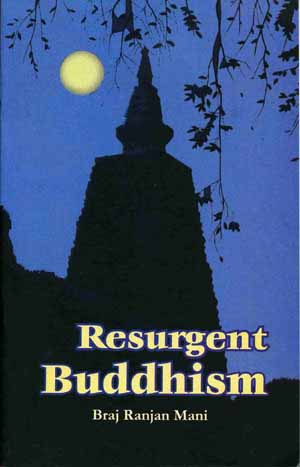
back to the list of books
About the Author
Braj Ranjan Mani is an independent writer and social activist. He is the author of Debrahmanising History : Dominance and Resistance in Indian Society (Manohar,2005).
Extracts from “Resurgent Buddhism”
“What nearly half a million men, women and children led by their beloved leader Babasaheb Ambedkar attempted on 14 October 1956 at Nagpur was actually a declaration of culture war for reclaiming life, liberty and dignity…The yet unfolding story of the soocially engaged Buddhism in India, its successes and frustrations, is a live example of this continuing dialetic of history.”
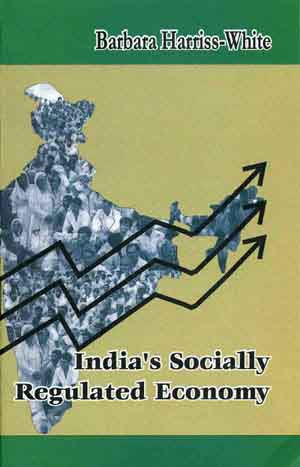
back to the list of books
About the Author
Barbara Harris-White is Professor of Development Studies at Queen Elizabeth House, Oxford. She is a field econimist specialising in South Asia.
Extracts from “ India's Socially Regulated Economy”
“If there is a solvent for this spatially and socially clustered economy, it is more likely to be the state rather than the market. The state may operate not only via its interventionist control over strategic sectors which provide raw and intermediate materials but also via the provision of infrastructure and subsidies….The leaching of taxable resources into the rapidly expanding black economy deprives the state of resources…. Black wealth is laundered abroad, or stored in real estate, finace, (retail) inventory and a relatively small amount in the form of gold….If points of leverage for change exist at all, they lie in institutional mechanisms which might make capital more accountable to the state, and the state to other parts of civil society.”
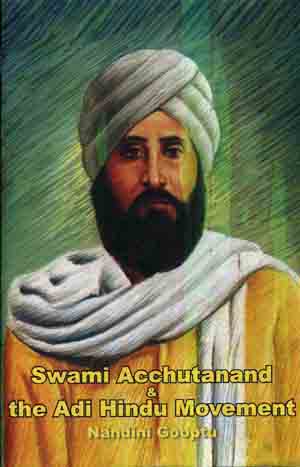
back to the list of books
About the Author
Nandini Gooptu is University Lecturer in South Asian Studies at University of Oxford and Fellow of St. Anthony’s College, Oxford.
Extracts from “Swami Achutanand & Adi Hindu Movement”
“Swami Achutanand (!879-1933), one of the most prominent Adi Hindu leaders in the 1920s and 1930s, was brought up at military contonement, where his father worked, and later settled in Kanpur…..The spread of Adi Hindu Movement was not, however, due simply to lure of practical benefits accrued from supporting its leaders or the role of ‘patron’ that the leaders played in the local community…..Adi Hinduism challenged the imposition of specific ‘low’ social roles on untouchables based on their ritual status….Bhakti is based on the idea of direct and personal communion with God, through devotion, meditation and spiritual introspection….Spiritual introspection (atma-anubhav) was accorded supreme importance as the only way to arrive at true knowledge or sadgyan and to evolve one’s own world-view.”
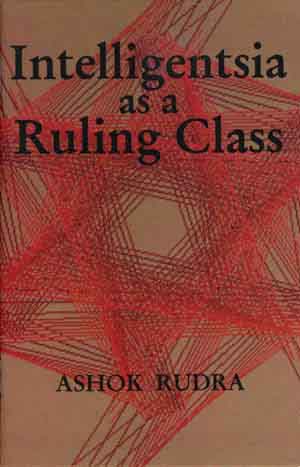
back to the list of books
About the Author
Ashok Rudra was one of the few Marxist economists, sensitive to Indian social reality. He taught at Visva Bharathi University, Shantiniketan.
Extracts from “Intelligentsia as a Ruling Class”
“As to politicians, it is well known that politics in our country is financed almost entirely by black money…..The Intelligentsia, through its own efforts, acquired many of the privileges it enjoys. The remaining privileges have been given to it as gifts by the other two Ruling Classes for a very crucial political reason……If this class is discontented they might promote restiveness among the masses and make them challenge the hegemony of the erstwhile Ruling Classes.”

back to the list of books
About the Author
M. N. Roy (1887-1954), was an outstanding international personality who took part in several revolutionary movements across the world. A communist turned humanist, Roy was a prolifiic writer as well as an activist. He was the founder of the Humanist Movemnent in India.
Extracts from “Historical Role of Islam”
“Composed by a man of practically no eduaction, the Koran, natuarally, is not a work of any intellectual standard. It is full of crude ideas and fantastic speculations….Without the severity of its ideology, Islam could not claim the historic role and credibly as it did…The current notion of the bigotry and fanaticism of Islam loses all historical authenticity when it is known that the men of learning so highly appreciated by the successors of the Prophet, were mostly devoid of any religious fervour, not a few of them holding views frankly heretical; and the general burden of their teachings was the assserttion of the reason of man as the only standard of truth.”
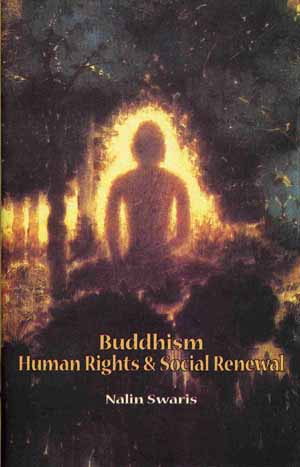
back to the list of books
About the Author
Nalin Swaris was born in Colombo, Sri Lanka, and was baptised into the Roman Cathlic Faith. He was ordained a Redemptorist Priest in 1962. After resigning from the ministry in 1969, he taught Social Philosophy and Methodology of Community Development for seventeen years at the Senior College for Social Work in De Horst, Dreibergen in the Netherlands. Back now in Sri Lanka, he works as a freelance journalist and lecturer.
Extracts from “Buddhism, Human Rights & Social Renewal”
“The Buddha specifically mentions respect for the dignity of women as a condition that will ensure a society’s moral and material welfare…..The human will is not a transcendental but a conditioned faculty…..Once all culturally constructed barriers between oneself and other others are demolished, what arises spontaneously is an immennse sense fo anukampa, or ‘compassion’: literally, ‘pulsating along with’….The Buddha realised that if people believe permanence is real and that change is illusory they will not even begin to think about changing the conditions in which they found themselves. He insisted on the conditioned co-arising of suffering…. The Buddha declared the most dangerous of all deluded views to be the belief that the self or ego is a sovereign and immortal entity, that its body and the physical world are merely instruments of the ego’s self-realisaion. He established that such hubris is the root cause of conflict in the world.”
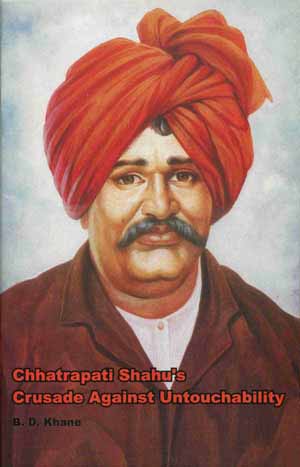
back to the list of books
About the Author
Bhausaheb Deu Khane is Professor, Bhagawan Mahavir Chair, at Shivaji University, Kolhapur. His Doctoral thesis was, ‘Socio-Political Reforms of Shahu Chhatrapati of Kolhapur’. He has also edited several volumes of Shahu’s private papers.
Extracts from “C. Sahu's Crusade against Untouchability”
“We must note that the act of abolition of forced labour on all-India level had to wait up to 1975, the year in which the Government of India did it away by law. The orders of Shahu were not merely glitteing generalities of a showy nature. They were the results of an urge of a genune friend of the suffeing humanity in India. The orders were strictly enforced during his time….. He moved about throughout the length and breadth of the Maharashtra openly, professedly and boldly, eating and drinking at the hands of the untouchables who were always close by his side. The Brahmins who always shouted against such act in the name of religion dared not mutter a word of disapprobation or protest aganst this act. ”

back to the list of books
About the Author
B.R. Ambedkar (1891- 1956) is certainly the tallest personality of Modern India. His monumental contribution to leading the country towards modernity in general and democratisation of the Indian society in particular, has not been adequately recognised and much less appreciated. Signs, however, are clear that the twenty-first century will increasingly bring to light the implications of his life and message in almost all spheres of national life. Ambedkar’s writings and speeches have been edited by late Vasant Moon and published by the Governemnt of Maharashta.
Extracts from “Gandhi & Emancipation of Untouchables”
“The untouchables and the Christians, who are also interested in their numbers, have no hand in the cooking of the Census, for the simple reason that they have no place in the administrative services of the country which deal with the operations of the Census…..
Coming to the second argument the Hindus are simply misusing the words majority and minority. They seem to forget that majority and minority are political categories. As political categories there is no fixed majority or a fixed minority…..There is no endosmosis between the Untouchables and Hindus as there is between a Majority and a Minority.”
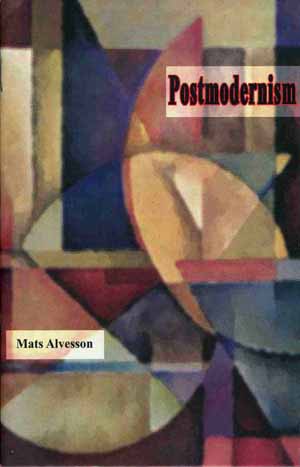
back to the list of books
About the Author
Mats Alvesson is Professor of Business Administration at the University of Lund, Sweden. His research interests include critical theory, gender, power, knowledge-intensive work and organisational culture and symbolism, qualitative method and philosophy of science.
Extracts from “Postmodernism”
“Postmodernism grew out of French structuralism by taking serously the linguistic turn in philosophy……The stuff of the world only becomes an object in a specific relation to a being for whom it can be such an object……Most postmodernists are not concerned with the chance of being called relativistic, they are more concerned with the apparent stability of objects and the difficulty of unpacking the full range of activities that produce particular objects and sustian them.”

back to the list of books
About the Author
Meera Nanda is a biologist and the author of Breaking the Spell of Dharma and other Essays and Prophets Facing Backward : Post Modernist Critiques of Science and Hindu nationalism in India.
Extracts from “A Prophet Facing Forward”
“Because the pragmatism Ambedkar finds in Buddha’s teaching bears an uncanny resemblance with American pragmatism’s anti-metaphysical bent, it may create a suspicion that it was smuggled in by the America-educated, Dewy-influenced Ambedkar. But there is good evidence that the historical Buddha himself was deeply influenced by anti-Vedic naturalist philosophies prevalent in pre-Buddhist India, especially those of Lokayata (literally, ‘prevalent among the people’) and Sankhya (literally ‘reflection’).
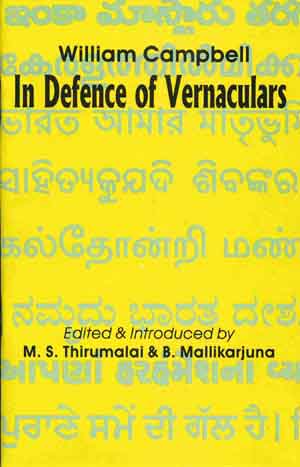
back to the list of books
About the Author
MS Thirumalai & B Mallikarjuna are linguists and editors of Language in India an electronic journal.
Extracts from “In Defence of Vernaculars”
“Will posterity believe it, that, in a cimmittee of public instruction, sitting in Calcutta, and discussing the great and important question, “what medium should be adopted to give a liberal education to the notives,” the vernacular languages – those spoken by the masses of th people; never once obtained an audiennce, nor an advocate to allude even to their claims? I say posterity, because such an event, I presume, has never occurred in the history of mankind before……Whatever may be the difference in the languages, they all belong to the same great family; similar laws regulate idiom, construction, style, and various kinds of composition, which prevail in the dialects of the north and the south; when you describe one art of India, you have, in many respects, described the whole……”
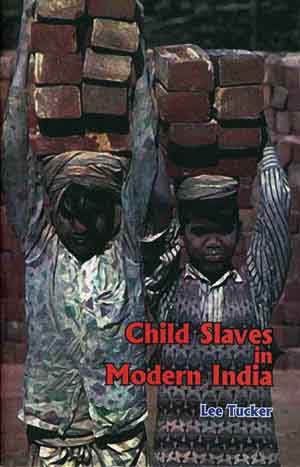
back to the list of books
About the Author
Lee Tucker, former counsel to the Children’s Rights Project of Human Rights Watch, is currently a United States Assistant Federal Public Defender for the District of Arizona.
Extracts from “Child Slaves in Modern India”
“It is not poverty which prevents India from investing more in its children, but rather the prejudices and values of those who create and implement policy in India…….Indeed, at least some government officials appear to be laboring under the conviction that the Bonded Labour Act does not apply to childredn, an interpretation that has no basis in the law itself nor in Supreme Court cases interpreting the law.”

back to the list of books
About the Author
Sekhar Bandyopadhyay teaches South Asian History at Victoria University, Wellington. His books include Caste, Politics and the Raj: Bengal 1872-1937 and Caste, Protest and Identity in Colonial India: The Namasudras of West Bengal, 1872-1947.
Extracts from “The Namashudra Movement”
“The low social position of the Namasudras, in almost all parts of Bengal, coincided with inferior economic status vis-à-vis the men of the higher castes…..The newly prosperous Chandals, in the late nineteenth century, had started feeling a large gap still existing between their recently achieved higher economic status and the continuing low social position.”
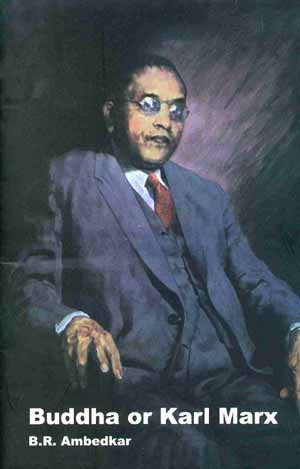
back to the list of books
About the Author
B.R. Ambedkar (1891- 1956) is certainly the tallest personality of Modern India. His monumental contribution to leading the country towards modernity in general and democratisation of the Indian society in particular, has not been adequately recognised and much less appreciated. Signs, however, are clear that the twenty-first century will increasingly bring to light the implications of his life and message in almost all spheres of national life. Ambedkar’s writings and speeches have been edited by late Vasant Moon and published by the Governemnt of Maharashta.
Extracts from “Buddha or Karl Marx”
“It is now clear what are the similarities and differences between the Buddha and Karl Marx. The differences are about the means. The end is common to both…..The Buddha was against violence. But he was also in favour of justice and where justice required, he permitted the use of force….

back to the list of books
About the Author
M C Rajah (1883-1943) was a great political leader of late-colonial India, promoting subaltern emergence in public sphere. He was also a pioneer in the collective educational efforts of marginalised castes in and around Madras. Much of the constitutional protection that the hitherto suppressed groups enjoy now is due to his tireless efforts. Rajah was a well-known public personality of his times and has held numerous positions of political power and responsibility. Historiography is yet to record and recognise adequately his services to the growth of political democracy in South India.
Extracts from “ The Oppressed Hindus”
“Are not the Adi Dravidas also children of the soil like the so-called Hindus? Does the fact that they live in miserable huts entitle them to contempt and neglect at the hands of the so-called Caste Hindus?….The Earl of Winterton, while speaking about Reforms, distinctly said, that so long as there existed a class known by the name of the Depressed Classes, India was utterly unfit for another installment of Reforms; and he said the mission of England in India was to remove that stigma from her fair name.”
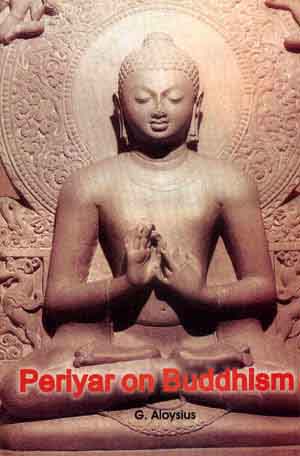
back to the list of books
About the Author
G. Aloysius is freelance researcher and social activist. His books include Nationalism Without a Nation in India (OUP) and Religion as Emancipatory Identity: A Budhist Movement among the Tamils under Colonialism (New Age International).
Extracts from “Periyar on Buddhism”
“The Buddhist philosophy has been blacked out. The Buddha was born in this country. Though he preached of truth, which he himself discovered, he was hounded out of this country…. All what is said in Buddhism is, ‘do not believe merely because mother says it or father says it, or because a particular thing has been long in prctice, or the Shastras, Vedas command it, or some he or she says it. But believe only those things that are found true according to one’s own reasoning and found consistent with experience.’…The time of the Buddha was one of Brahminical dominance and influence of orthodox religion. The Buddha appeared in such times; and in his view the activities and philosphies of the Brahmins, every single one of them was wrong. And he struggled to change all of them.”
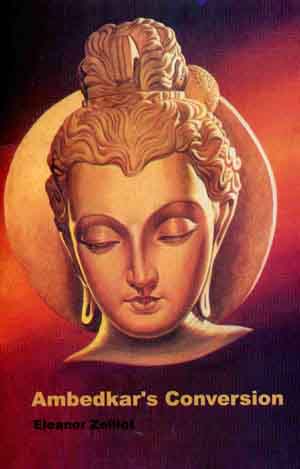
back to the list of books
About the Author
Eleanor Zelliot is an internationally acclaimed scholar in Dalit-Buddhist
Ambedkarite studies. She is Professor Emerita at Carleton College, Minnesota, USA.
Extracts from “Ambedkar's Conversion”
“Conversion to Islam was the greatest threat Ambedkar could hold over the heads of the Hindus….Although it is probable that Ambedkar did not ever seriously contemplate joining Muslim community, he found it convenient to reiterate the possibility of the Untouchables becoming Muslim…..He spoke of the Mahars giving up the dragging out of dead cattle and the eating of that meat in earlier days, and the criticism of caste Hindus of that improvement. He contrasted the life of a virtuous woman living with dignity to the easier life of the prostitute, evidently making these points to urge his audience to sacrifice for self-respect.”

back to the list of books
About the Author
John Baptist Hoffman (1857-1928) Jesuit Missionary of German origin spent substantial part of his life among the Mundas serving them as a Good Samaritan. His contributions to them as well as to the world of knowledge in general, range extremely wide. The Chota Nagpur Catholic Cooperative Society, Ranchi and Encyclopedia Mundarica (13 Volumes) are living witnesses to the scholar-activist’s commitment to the cause of the oppressed millions of India.
Extracts from “The World of the Mundas I”
“What the Company intended was simply to secure the safety of the public and the tranquility of the country. For that purpose the controlling power of a modern state requires an organised police to report the happenings in the country and efficiently to check criminals and disturbers. Had the rajah appointed the village chiefs to report the necessary matters to their mankis, and these, to report to himself, the system might , probably would have worked satisfactorily, for the Mundas appreciate confidence shown them. But for that he had got too far into the hands of aliens. And so the Mundas, who had never brooked interference in their village mattters, which they considered as family affairs, now saw themselves and their private affairs at the absolute diescretion of hated foreigners and such vile and low caste people as the Ghasi chowkidars.”

back to the list of books
About the Author
John Baptist Hoffman (1857-1928) Jesuit Missionary of German origin spent substantial part of his life among the Mundas serving them as a Good Samaritan. His contributions to them as well as to the world of knowledge in general, range extremely wide. The Chota Nagpur Catholic Cooperative Society, Ranchi and Encyclopedia Mundarica (13 Volumes) are living witnesses to the scholar-activist’s commitment to the cause of the oppressed millions of India
Extracts from “The World of the Mundas II”
“Thus then the settlement literally resembled a calm, sunny morning after a long destructive hurricane, which had reduced all the Mundas to extreme poverty and had thrown hundreds of thousands for ever far away from their own dear country. For those remaining it brought peace and security. To me who had been forced to witness and feel the horrid sufferings of the Mundas for so many years, it afforded one of the greatest joys of my life.”

back to the list of books
About the Author
Raymond Williams (1921-1988) was a highly influential Welsh academic, novelist and critic. A committed socialist, he was greatly interested in the relationship between language, literature and society. Author of several books on these and other issues, Williams is a founder of an important stream of Cultural Studies.
Extracts from “Marx on Culture”
“What then of the relation between the ‘division of labour’ and the attempted distinction between forms of mental labour which are aspects of more genral productive processes and those forms which were seen, at least by the young Marx, as ‘ends in themselves’?….To move from Marx on art to Marx on ideas is to enter a very different and much more authoritative dimension. It is here his major contribution to cultural theory was made.”

back to the list of books
About the Author
Dr S Omana’s doctoral thesis is on the philosophical dimension of Sri Narayana Guru’s message. She writes in English and Malayalam.
Extracts from “Sri Narayana Guru”
“It is an irony of history that the man who dedicated his entire life for the cause of abolition of caste is today pinned down to the name of a particular caste group of Kerala as their benefactor, while Mahatma Gandhi, who ardently believed in the four varnas and the merit of occupational distribution implied in the caste system, is now venerated as the foremost champion against casteism and untouchability…”
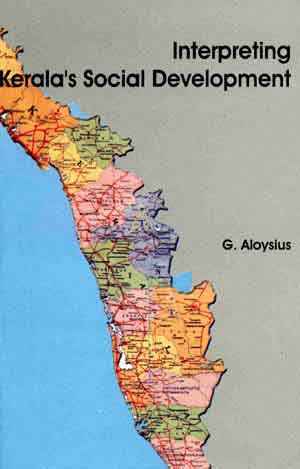
back to the list of books
About the Author
G. Aloysius is freelance researcher and social activist. His books include Nationalism Without a Nation in India (OUP) and Religion as Emancipatory Identity: A Budhist Movement among the Tamils under Colonialism (New Age International).:
Extracts from “Interpreting Kerala's Social Development”
“In short, the second half of the 19th century is crucial to the modern history of Kerala in this: it was during this period that the cultural foundation was laid for the politicization process of the Malayali ethnie; it consisted in the language becoming ‘urban capitalist’, mass-based or simply non-contextual; paralel revolutions underlay this phenomenon, that of massification of education and popularisation of vernacular journalism.”

back to the list of books
About the Author
Bharat Patankar is a social actvist with th farmers’movement in Maharashtra; he is also a regular contributor to Marathi journals and newspapers.
G. Omvedt is currently a Senior Fellow at the Nehru Memorial Museum and Library. A prolific writer, she has published a large number of books including Dalit Visions (1975) and Dalit and Democratic Revolution (1994) besides having translated Growing up Untouchable in India: A Dalit Autobiography.
Extracts from “Dalit Liberation Movement in Colonial Period”
“No direct struggles for land for dalits were apparently taken up before Independence, but as far as Ambedkar at least was concerned it seems the issue of land was always present….Kisan Sabha organising, in its areas of strength, benefited dalits more directly. The fight against feudal forced-labour struck at bondage within the village; the organisation of agricultural labourers, which had its beginnings in the 1940s, also involved a challenge to feudal servitude: as a Kerala landlord put it, “His body and his father’s are my property and he dares to ask for wages?”

back to the list of books
About the Author
G. Aloysius is freelance researcher and social activist. His books include Nationalism Without a Nation in India (OUP) and Religion as Emancipatory Identity: A Budhist Movement among the Tamils under Colonialism (New Age International).
Extracts from “Iyothee Thassar & Emancipatory Buddhism”
“What was the specific socio-historical context in which the dalit-subalterns made their historic bid to emerge as a subject in the religio-cultural sphehre? The sub-continent entered modernity while labouring under a particular vicious and collusive form of colonialism; it was vicious as well as collusive because, here colonialism was constituted of a compact between the Imperial British on the one hand and the locally dominant, to be specific, Brahmins, the Brahminical and the Brahminised castes known generally as the savarnas or twice born on the other (R Robinson, 1972)…..The revenue-hungry British both in logic and reality struck an unwritten deal of mutual interests with these social groups. In return for regular payment of revenue the former assured the latter of ‘non-inteference’ and in effect turned a blind eye to the consequent comprehensive Brahminical aggrendisemant, sectarian reconstruction of the socio-cultural scenario and the legitimation of the same as ‘custom and tradition’ (D Washbrook, 1993).”

back to the list of books
About the Author
Sukhdeo Thorat is professor of Economics at Jawaharlal Nehru University since 1981. His research work is mainly on Agricultural Development, Rural Poverty, Institution and Economic Growth, Problems of Marginalised Groups such as SC/ST, Economics of Caste System, Human Rights Issues, Thought of Ambedkar, Urban Slum etc. Professor Thorat is the Founder Director of Indian Institute of Dalit Studies, New Delhi.
Extracts from Hindu Social System.& Human Rights of Dalits
“The religious and philosophical principles of Hinduism provide support and justification for the Hindu social order. The religious, philosophical and ritual elements in Hinduism are thus equally important in perpetuating the caste system…..Untouchability is not just a social and cultural phenomenon but is closely related with the material condition, division of labour, economic status and occupation and therfore, economic interest and privilege (as much as the social and religious interest) of the higher castes. …Conflict has grown because the Hindu traditional system with its built-in structural inequalities is being challenged by the imposition of secular universal values.”
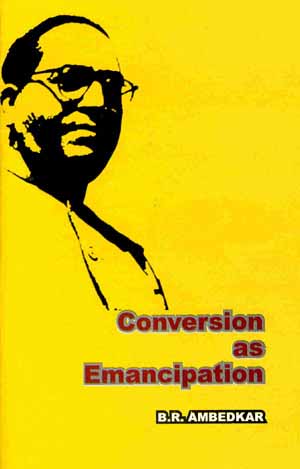
back to the list of books
About the Author
B.R. Ambedkar (1891- 1956) is certainly the tallest personality of Modern India. His monumental contribution to leading the country towards modernity in general and democratisation of the Indian society in particular, has not been adequately recognised and much less appreciated. Signs, however, are clear that the twenty-first century will increasingly bring to light the implications of his life and message in almost all spheres of national life. Ambedkar’s writings and speeches have been edited by late Vasant Moon and published by the Governemnt of Maharashta.
“Extracts from “Conversion as Emancipation”
“If the fact I have described above is true, then you will have to agree with the conclusion of it. The conclusion is, if you depend only upon your strength, you will never be able to face the oppression. I have no doubt that you are oppressed because you have no strength…..Since the beginning of this movement of conversion, many people have raised many objections to it…..It is fit only for a fool to say that one should cling to one’s own religion merely because it is ancestral.

back to the list of books
About the Author
Uma Chakravarti is a historian and she lectured at Miranda House College for Women. She has worked and written on issues of caste and gender and is active in democratic rights and women’s movements. Her works include Social Dimension of Early Buddhism and Gendering Caste.
Extracts from “The Social Philosophy of Buddhism & the Problem of Inequality”
“The relations of production inherent in the new society thus provided the backdrop in which social heirarchy and gender hierarchy were the backdrop in which social hierarchy and gender hieracrchy were crystallized into permanent institutions….An analysis of Buddhist social thought requires us to probe the socio-economic distinctions that had already emerged in the 6th century BC and the political institutions that were simultaneouly being shaped.”

back to the list of books
About the Author
G. Omvedt is currently a Senior Fellow at the Nehru Memorial Museum and Library. A prolific writer, she has published a large number of books including Dalit Visions (1975) and Dalit and Democratic Revolution (1994) besides having translated Growing up Untouchable in India: A Dalit Autobiography.
Extracts from “Phule & Ideology of Social Revolution in India”
“The purpose of the ‘non-Aryan’ theory is to establish a cultuaral and racial basis for the unity of the Maharashtrian masses….The primary economic conflict within India was thus described as a conflict between the peasantry and the elite-dominated bureaucracy. Zamindars or inamdars in this area of ryotwari settlement were more or less viewed as irrelevant.”
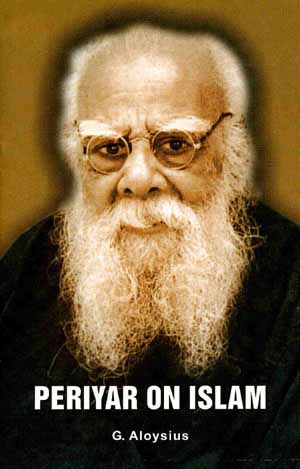
back to the list of books
About the Author
G. Aloysius is freelance researcher and social activist. His books include Nationalism Without a Nation in India (OUP) and Religion as Emancipatory Identity: A Budhist Movement among the Tamils under Colonialism (New Age International).
Extracts from “Periyar on Islam”
“Day by day people are changing; the changing times also facilitate this….Generally speaking life is self-centred. Moreover man makes continuous efforts in the direction of improvement of his own life, security and comforts and in all aspects….As far as Iam concerned, I consider Mohammad Nabi as a special man with all the qualities of a human being and not of a status said to be higher than that.”
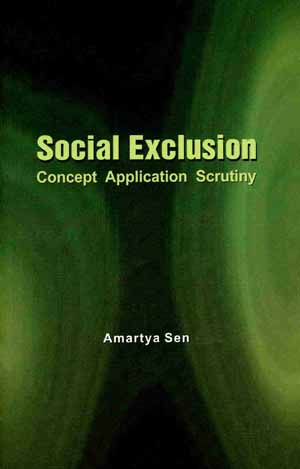
back to the list of books
About the Author
Amartya Sen, a Nobel Laureate, is one of the foremost Development Economists of the day. He has scores of books, monographs and articles to his credit. His expanded notions of poverty and development are guiding lights for researchers and activists alike. One of his more recent works is Development as Freedom, published by Oxford University Press.
Extracts from “Social Exclusion”
“The literature of social exclusion addresses two central issues, respectively, in epistemology and in practical reason. The epistemic question on which it focuses is how to get better understanding of the diverse phenomena of deprivation and poverty, focusing particularly on relational obstacles. The challenge of practical reason goes beyond that into policy implications of that understaning. The question there takes the form of asking how to improve policy making, in light of the understanding generated by studies of social exclusion.”
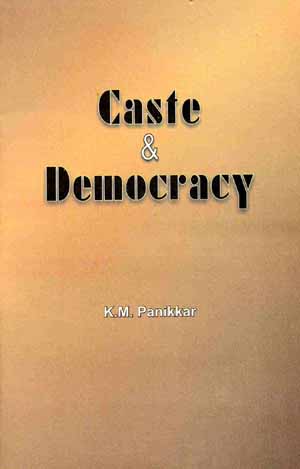
back to the list of books
About the Author
K.M. Panikkar (1894-1963), a distinguished historian, administrator, diplomat, educationist and novelist, was born in Kavalam, Kerala. After his schooling in India, he left for Oxford in 1914, where he spent four years studying history.
Extracts from “Caste & Democracy”
“Both in its principles and in its tendencies, democracy presents a striknig contrast to cate…..the first postulate of democracy, therefore, is that the state represents, not symbolically, but in reality, the organised energy of the whole community….Whether the democratic ideal will sufficiently penetrate the masses is the great peroblem in India today.”

back to the list of books
About the Author
Romila Thapar is internationally known historian of Ancient India. She taught at Jawaharlal Nehru University. Her several books include Ashoka and the Decline of the Mauryas, From Lineage to State and Interpreting Early India, all from Oxford University Press, New Delhi.
Extracts from “Imagined Religious Communities”
“The nineteenth-century definition of the Hindu community sought its justification in early history using Mill’s periodization, which assumes the existence of Hindu and Muslim communities and takes the history of the former back to the centuries BC….The more basic question for the historian is to explain the slow and gradual spread of the Indo-Aryan language across a large part of the Indian subcontinent.”